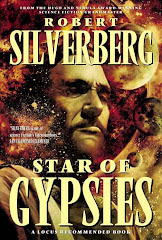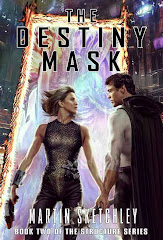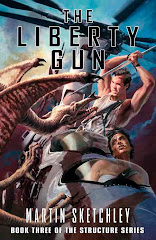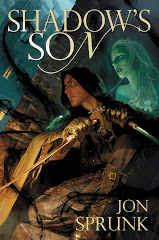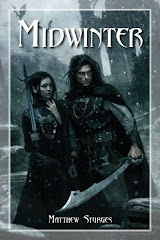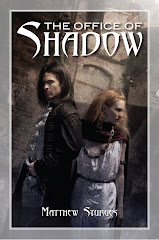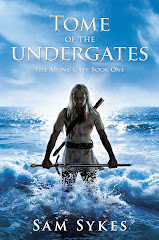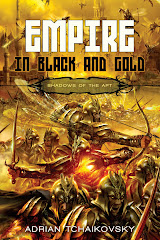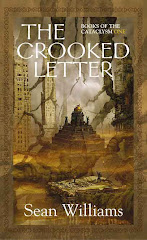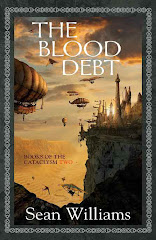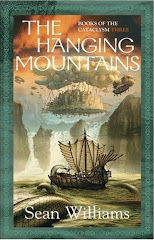--Graeme’s Fantasy Book Review
The city states of the Lowlands have lived in peace for decades, bastions of civilization, prosperity and sophistication, protected by treaties, trade and a belief in the reasonable nature of their neighbors. But meanwhile, in far-off corners, the Wasp Empire has been devouring city after city with its highly trained armies, its machines, it killing Art . . . And now its hunger for conquest and war has become insatiable.
Only the ageing Stenwold Maker, spymaster, artificer and statesman, can see that the long days of peace are over. It falls upon his shoulders to open the eyes of his people, before a black-and-gold tide sweeps down over the Lowlands and burns away everything in its path.
But first he must stop himself from becoming the Empire's latest victim.
Don't let the suspense kill you; read an excerpt from the book here:
Empire in Black and Gold
Shadows of the Apt: Book 1
Shadows of the Apt: Book 1
Adrian Tchaikovsky
One
After Stenwold picked up the telescope for the ninth time, Marius said, “You will know first from the sound.”
The burly man stopped and peered down at him, telescope still half-poised. From their third-storey retreat the city walls were a mass of black and red, the defenders hurrying into place atop the ramparts and about the gates.
“How do you mean, the sound?”
Marius, sitting on the floor with his back to the wall, looked up at him. “What you hear now is men braving themselves for a fight. When it starts, they will be quiet, just for a moment. They will brace themselves. Then it will be a different kind of noise.” It was a long speech for him.
Even from here Stenwold could hear a constant murmur from the gates. He lowered the telescope reluctantly. “There’ll be a great almighty noise when they come in, if all goes according to plan.”
Marius shrugged. “Then listen for that.”
Below there was a quick patter of feet as someone ascended the stairs. Stenwold twitched but Marius remarked simply, “Tisamon,” and went back to staring at nothing. In the room beneath them there were nine men and women dressed in the same chain hauberk and helm that Marius wore, and looking enough like him to be family. Stenwold knew their minds were meshed together, touching each other’s and touching Marius too, thoughts passing freely back and forth between them. He could not imagine how it must be, for them.
Tisamon burst in, tall and pale, with thunder in his expression. Even as Stenwold opened his mouth he snapped out, “No sign. She’s not come.”
“Well there are always—” Stenwold started, but the tall man cut him off.
“I cannot think of any reason why she wouldn’t come, except one,” Tisamon spat. Seldom, so very seldom, had Stenwold seen this man angry and, whenever he had been, there was always blood. Tisamon was Mantis-kinden, whose people had, when time was young, been the most deadly killers of the Lowlands. Even though their time of greatness had passed, they were still not to be toyed with. They were matchless, whether in single duel or a skirmish of swords, and Tisamon was a master, the deadliest fighter Stenwold had ever known.
“She has betrayed us,” Tisamon stated simply. Abruptly all expression was gone from his angular features but that was only because it had fled inward.
“There are . . . reasons,” Stenwold said, wishing to defend his absent friend and yet not turn the duellist’s anger against himself. The man’s cold, hating eyes locked on to him even so. Tisamon had taken up no weapon, but his hands alone, and the spurs of naked bone that lanced outward from his forearms, were quite enough to take Stenwold apart, and with time to spare. “Tisamon,” Stenwold said.
“You don’t know . . .”
“Listen,” said Marius suddenly. And when Stenwold listened, in that very instant there was no more murmur audible from the gates.
And then it came, reaching them across the rooftops of Myna: the cry of a thousand throats. The assault had begun.
It was enough to shout down even Tisamon’s wrath. Stenwold fumbled with the telescope, then stumbled to the window, nearly losing the instrument over the sill. When he had the glass back to his eye his hands were shaking so much that he could not keep it steady. The lens’s view danced across the gatehouse and the wall, then finally settled. He saw the black and red armour of the army of Myna:
men aiming crossbows or winching artillery around. He saw ballista and grapeshot-throwers wheel crazily through the arc of the telescope’s eye, discharging their burdens. There was black and gold now amongst the black and red. The first wave of the Wasp divisions came upon them in a glittering mob:
troops in light armour bearing the Empire’s colours skimming over the tops of the walls, the air about their shoulders ashimmer with the dancing of nebulous wings. For a second Stenwold saw them as the insects they aped, but in reality they were armoured men, aloft in the air, with wings flickering from their backs and blades in their hands. They swooped on the earthbound defenders with lances and swords, loosing arrows and crossbow bolts and hurling spears. As the defenders turned their crossbows upward toward them, Stenwold saw the bright crackle as golden fire flashed from the palms of the attackers’ hands, the killing Art of the Wasp-kinden.
“Any moment now,” Stenwold whispered, as though the enemy, hundreds of yards away, might overhear him. From along the wall he heard a steady thump-thump-thump as Myna’s huge rock-launchers hurled missile after missile into the ground troops advancing beyond the wall.
“They’re at the gate.” Marius was still staring into space, but Stenwold knew that one of his men was positioned on a rooftop closer to the action, watching on his behalf.
“Then it must be now,” Stenwold said. “Now.” He tried to focus the jittery telescope on the gates, saw them flex inward momentarily and heard the boom of the battering ram. “Now,” he said again uselessly, for still nothing happened. All that time he had spent with the artificers of Myna, charging the earth in front of the gates with powder, and nothing.
“Perhaps they got it wrong,” Marius suggested. Again the ram boomed against the metal-shod gates, and they groaned like a creature in pain before it.
“I was practically looking over their shoulders,” Stenwold said. “It was ready to go. How could they have . . . someone must have . . .”
“We are betrayed,” said Tisamon softly. “By Atryssa, clearly. Who else knew the plan? Or do you think the people of Myna have sold their own to the slaver’s block?”
“You . . . don’t know . . .” But Stenwold felt conviction draining from him. Atryssa, so expected but so absent, and now this . . .
“Spider-kind,” Tisamon spat, and then repeated, “Spider-kind,” with even keener loathing. On the walls the vanguard of theWasp army was already engaged in a hundred little skirmishes against the shields of the defenders. Tisamon bared his teeth in utter fury. “I knew! I knew you could never trust the Spider-kinden. Why did we ever let her in? Why did—Why did we trust her?” He was white knuckled, shaking, eyes staring like a madman’s. The spines flexed alarmingly in his forearms, seeking blood. Stenwold stared into his face but barely heard the words. Instead he heard what Tisamon had left unsaid, and knew not fear but a terrible pity. Spider-kinden, as Tisamon said. Spider-kinden, as subtle and devious as all that implied, and still Tisamon, with a thousand years of race hatred between
them, had let her into his life and opened the gates of his soul to her. It was not just that Atryssa had betrayed her friends and betrayed the people of Myna; it was that she had betrayed Tisamon, and he could not bear the hurt.
“It has been a long time,” Marius said quietly. “A lot can happen that even a Spider cannot predict.”
Tisamon rounded on him, livid with anger, but just then with a great scream of tortured metal, a thundercrack of splintering wood, the gates gave way.
The ramming engine was first through, no telescope needed to see its great brass and steel bulk as it blundered over the wreckage it had created, belching smoke from its funnels. A ballista atop its hood hung half off its mountings, mangled by the defenders’ artillery, but there were eyelets in its metal sides from which spat crossbow bolts and the crackling energy of the Wasps’ Art. Swarming either
side of it were their line infantry, spear-armed but shieldless. Clad in armour too heavy to fly in, they pushed the men stationed at the gate back through sheer force, while their airborne divisions were beginning to pass over the city. The guardians of Myna were a disciplined lot, shield locked with shield as they tried to keep the enemy out. There were too many of them, though; the assault came from before and above, and from either side. Eventually the defenders’ line buckled and fell back.
“We have to leave now,” Stenwold said, “or we’ll never get out. Someone has to know what’s happened here. The Lowlands have to be warned.”
“The Lowlands won’t care,” said Marius, but he was up and poised, and Stenwold knew that, below them, his soldiers would be ready with shield and sword and crossbow. They went down the stairs in quick succession, knowing that, now their single trick had failed, nothing would keep the Wasps out of Myna. Their army had five men for every defender the city could muster.
What a band we are. The thought passed through Stenwold’s mind as he took the stairs, bringing up the rear as always. First went Marius, tan-skinned and dark, with the universally compact build of his race: he had abandoned his people to come here, gone renegade so that he could fight against the enemy his city would not believe in. After him came Tisamon, still consumed with rage and yet still the most graceful man Stenwold had ever known. His leather arming jacket bore the green and gold colours, even the ceremonial pin, of a Mantis Weaponsmaster. Stenwold had never seen him without it and knew he was clinging to his grudges and his honour like a drowning man.
And then myself: dark of skin and receding of hair; stout and bulky, loud of tread. Not my fault my folk are so heavy boned! Hardwearing leathers and a scorched apron, a workman’s heavy gloves thrust through my belt, and goggles dangling about my neck. Not at first sight a man ever intended for war. And yet here I am with a crossbow banging against my legs.
Down in the room below, Marius’s soldiers were already alert and on their feet, Some had their heavy square shields out, swords at the ready, others had slung them and taken up crossbows. Two carried the baggage: a heavy leather bag containing Stenwold’s tools, and a long wooden case. Even as Stenwold got sight of the room they were unbarring the door, throwing it open. Immediately two of them pushed out, shields first. Stenwold realized that he had paused halfway down, dreading the moment when there would no longer be a roof above him to keep off enemy shot. Tisamon and most of the soldiers were gone. Marius, however, was waiting for him, an unspoken urgency hanging in his gaze.
“I’m coming,” Stenwold said, and hated the shaking of his voice. He clumped on down the stairs, fumbling for his crossbow.
“Leave it, and just move,” Marius ordered, and was out of the door. Following behind Stenwold, the final pair of soldiers moved in to guard the rear.
And then they were out into the open air. The sounds of the fighting at the gate were very close, closer than he could have thought, but this street had seen no blood—not yet. There were citizens of Myna out and about, though, waiting in a scatter of anxious faces. Men and women, and boys and girls still too young to be here at all, they were clutching knives and swords and staves, and waiting.
At his unheard direction, Marius’s soldiers formed up: shields before and shields behind, with Stenwold, the baggage and the crossbows in the middle. Marius was at point, already setting a rapid pace down the narrow street. His troop’s dark armour, its single purpose, moved people quickly out of the way without need for words or action.
“I can’t run as fast as your lot,” Stenwold complained. He already felt out of step and was just waiting for the men behind to jostle or stumble over him. “Where’s Tisamon, anyway?”
“Around.” Marius did not look back or gesture, but then Stenwold caught a glimpse of the Mantis warrior passing through the crowd like an outrider, constantly pausing to look back toward the gate and then move on. He wore his armoured glove, with the blade jutting from between the fingers, flexing out like a sword blade one moment, folded back along his arm the next. It was an ancient tool of his kind and a laughable anachronism, save that Stenwold had witnessed what he could do with it.
“What about your man, at the gates?” Stenwold called, trying desperately to fall into step with those around him.
“Dead,” was the officer’s curt reply.
“I’m sorry.”
“Be sorry when you know the full tally,” said Marius. “We’re not out of it yet.” There was a ripple among the people of Myna, and not from the passage through them of this little squad of foreigners heading for the airfield. Stenwold realized what it must mean. All around now, they were brandishing their swords or workman’s hammers or simple wooden clubs. It would not be quick or easy to capture this city, but the Wasps would have it in the end. Their dream of a black-and-gold world would accept no less.
Stenwold was Beetle-kinden and in the Lowlands his people were known for their industry, their artifice, even, as he liked to think, for their charity and kindly philosophy. The people of Myna were his distant cousins, being some offshoot of Beetle stock. He could spare them no charity now, however. He could spare no thought or time for anything but his own escape.
A brief shadow passed across him as the first of the Wasp vanguard soared overhead in a dart of black and gold, a shimmer of wings. Three more followed, and a dozen after that. They were heading in the same direction that Stenwold was moving.
“They’re going to the airfield. They’ll destroy the fliers!” he shouted in warning.
Instantly Marius and his men stepped up the pace and Stenwold wished he had not spoken. Now they were jogging along, effortlessly despite their armour, and he was running full tilt within a cage formed by their shields, feeling his gut lurch and his heart hammer. Behind him there were screams, and he made the mistake of looking back. Some of the Wasps, it seemed, were not heading for the airfield, but had stopped to rake across the assembled citizens with golden fire and javelins and crossbow bolts, circling and darting, and coming back to loose their missiles once again. This was no ordered attack, they were a frenzied mass of hatred, out solely for slaughter. Stenwold tripped even as he gaped, but the woman closest behind caught him by the arm and wrenched his bulk upright again, without breaking stride.
A moment later his rescuer herself was hit. There was a snap and crackle, and the stink of burned flesh and hot metal, and she sagged to one knee. Stenwold turned to help but nearly fell over the man reaching to drag her upright. TheWasp light airborne troops were all around them now, passing overhead, or diving at the citizens to drive them off the streets. A crossbow bolt bounded past Stenwold like a living thing.
The injured woman was on her feet once more. She and the man beside her turned to face the new assault. Marius and the rest kept moving.
“Come on, Stenwold! Hurry!” the officer shouted.
“But—”
“Go,” said the injured woman, no pain or reproach in her voice. She and the man with her locked shields, waiting. Stenwold stumbled away from them, then turned and fled after Marius and the others.
Tisamon was beside him in an instant. He had a look on his face that Stenwold had never seen before, but he could read it as though the Mantis’s thoughts were carved there. Tisamon wanted a fight. He had been betrayed. He had been broken. Now he wanted a fight that he could not win.
“Get a move on, fat-Beetle,” he hissed, grabbing one strap of Stenwold’s apron and hauling him forward. “You’re getting out of here.”
“We are,” corrected Stenwold, too out of breath by now to say any more. He watched Tisamon snatch a Wasp spear from the air in his offhand and then the Mantis spun on his heel, launched it away into the sky behind them, and was immediately in step once again. Stenwold did not pause to look, but he had no doubt that behind them some Wasp soldier would now be dropping from the sky, pierced through by his own missile.
Myna was a tiered city and they hit a set of steps then, a steep, narrow twenty-foot ascent. Stenwold tried to slow down for it but Tisamon would not let him, grabbing his arm again and pulling him upward, exerting every muscle in his lean frame.
“Keep moving,” the Mantis snapped at him through gritted teeth. “Move your great big fat feet, you Beetle bastard!”
The sting of that insult got Stenwold to the top of the steps before he realized. There were more citizens up there, all trying to head in the wrong direction, directly toward the gates. Something in Tisamon’s face or body language pushed them easily aside. Ahead, Stenwold could see Marius’s squad taking the next set of steps at a run.
And Stenwold ran, too, as he had never run before. His toolstrip, and his sword and crossbow, all clattered and conspired to trip him up. His breath rasped as he dragged ever more of it into his lungs, yet he ran, because up beyond those steps lay the airfield. Then he would know if he could stop running or if it was already too late.
There were Wasp soldiers scattered across the airfield. At the far end, the great bloated bulk of an airship balloon was slowly settling into itself, gashed in a dozen places and deflating. Some half a dozen dead men and women were strewn like old toys between the flying machines, but a dozen more were putting up a final desperate defence, letting off their crossbow bolts at the circling Wasp soldiers from
whatever shelter they could find. If the Wasps had been arrayed in military order they could have swept the place clean in a minute, but they were mad for blood, each one on his own.
Stenwold noticed one old man frantically stoking the boiler of a sleek orthopter that stood there like a tall ship, its slender wings folded together and pointing up toward the sky. A Wasp soldier passed close and caught him by the collar, hauling him ten feet away from the machine before touching down again
and putting his sword through the old man once, twice, three times. A moment later a bolt caught the same soldier between the shoulder blades. He pitched forward, trying even as he fell to reach behind him and pull it out.
“That one!” wheezed Stenwold, stumbling toward the now deserted orthopter. It was stoked. It was ready to go. “Come on!” he gasped.
In a moment Marius’s men were around him, and then they were past him, deliberately moving away from the machine and making a brief wall of their shields with crossbows poised behind it, guarding the retreat as effectively as they could.
“Can you fly this?” Marius demanded. Stenwold merely nodded, because he had no more breath to speak, and no room left for doubt. The officer clapped him on the shoulder. “Get it moving. We’ll join you.” And then, as Stenwold hurried past him, “Watch out for Tisamon. He does not want to leave this place.”
I know why. But Stenwold did not have the breath for it.
Tisamon was already at the orthopter, hand reaching for the hatch, then stopping. He looked back at Stenwold with an agonized expression. “I—how . . .”
“The handle. Turn the handle.”
Hand on the lever, the Mantis shook his head, baring his teeth. One of Marius’s men arrived just then, ducked neatly under his arm and hauled the hatch open, hurling Stenwold’s toolbag inside. Stenwold reached the orthopter so fast that he bounced back off the scuffed wood of its hull. The soldier had already unslung his crossbow and was running to join his colleagues. Tisamon turned and went with him.
“Wait—” Stenwold got out, but the Mantis was already sprinting across the airfield with his blade drawn back ready for action. Even as Stenwold hauled himself up into the machine, the Mantis leapt and caught a passingWasp by his black-and-gold boot, dragging the flailing man out of the sky and lashing the two-foot edge of his metal claw across the invader’s throat. It would be a poor day for any
Wasp who met with the Mantis just then.
Stenwold shouldered his way through the cramped interior of the flier toward the cockpit, there finding a single seat too small for him and unfamiliar controls. He was an artificer, though, and had lived with machines all his life. A moment’s observation told him which glass bar indicated the boiler pressure, which lever unleashed the wings. A Wasp soldier darted across the large and wide-open ports that were mainly what Stenwold had between him and the fighting outside. Then the wings clapped down and outward with a roar of wood and canvas and the soldier was sent spinning by the concussion of air. Stenwold’s feet found pedals in the narrow confines of the footwell. The boiler pressure was now closing on the optimal. He put his head back, peering through the open hatch for any sign of his comrades.
Half of Marius’s men were already dead, he saw, and this jolted his heart. They fought beautifully: even he, though no warrior, could see that. Each man knew by heart the thoughts of his fellows, so they moved as one. They were so few, though, and the Wasps swarmed all over the field. Shield and crossbow were no defence against their numbers.
“Come on!” Stenwold bellowed. “Let’s go now!” He could not believe that they would hear him over the din of combat but one of them must have, and so they all did. They began to fall back, shields held high. Even as he watched, another was lanced in the side by a crossbow bolt, falling awkwardly before rising to one knee. The others continued to retreat, and Stenwold might have thought it heartless of
them had he not been so sure that the fallen man would be exhorting them to go, to leave him there. Stenwold realized that he knew none of their names, had not even heard many of them speak.
Ant-kinden, he would never understand them or their communal world. Or how Marius had managed to leave that world and not look back.
The hatch went suddenly dark. AWasp soldier forced his way in, the dance of his wings dying behind him. One open hand still crackled with the fire of his sting but he was now leading with his sword. Stenwold was lurching backward even as the man’s shoulders cleared the entrance, hurling the first thing that came to hand, which happened to be a mechanic’s hammer. It thumped into the Wasp soldier’s shoulder and knocked him half out of the hatch. Then Stenwold was upon him, grabbing for his sword arm with one hand, lunging with the other. He never got hold of the man’s sword, but his right hand somehow managed to draw his own, and he rammed it up to its narrow guard in his adversary’s armpit.
The Wasp spat at him and he recoiled in shock, then recoiled again as he saw the blood stringing across the man’s lips. Then the dying soldier was falling out of the flier, the weight of him taking Stenwold’s sword from his suddenly nerveless fingers.
He had just killed another human being. There’s a first time for everything. One of Marius’s soldiers now reached the hatch and cast the wooden case inside. Marius himself and three of his men were still inching their way back, painfully slow.
“Tisamon!” Stenwold called out. “Tisamon!”
He saw him then, the Weaponsmaster, moving in and out of the Wasps as they tried to corner him. But he stepped through the golden energy of their stings, their crossbow bolts that fractured on the hard earth of the airfield. He caught their spears easily and hurled them back. His blade, twisting and darting too swift to see, was never still for a second. It moved as naturally as his wrist and hand and arm could, and there were always the spines of his arms to cut and tear at anything the metal missed. Tisamon was going to die, but he would have more company on his journey than he knew what to do with.
“Tisamon!” Stenwold shouted and the Mantis-kinden broke off from the fight, danced across to him, casually cutting down a Wasp that tried to put a spear in him.
“Get Marius inside and go!” Tisamon commanded. “Go! Just go!”
Stenwold’s face twisted up in anger and fear. “You bloody-handed bastard! If you stay here then you’re taking me with you! I’m not going without you!”
Even as he moved to meet the next attacker Tisamon’s face showed how utterly unfair he felt that threat was. Even so, he was returning to the orthopter in the very next instant.
“Marius, now!” Stenwold shrieked, and at last Marius and his two survivors broke into a run, shields temporarily slung on their backs. Stenwold ducked away from the hatch and even as he did so a lance of energy blasted a smoking hole in the rim. Hands shaking, he squeezed himself back into the pilot’s seat, and began to pedal fast. He felt the entire frame of the flier creak as the wings moved, first up
and then down, powered by the steam boiler but guided by his feet.
Someone vaulted into the flier, and Stenwold flinched in fear, but it was only Tisamon, face grim. He set on the wooden case immediately and tugged at the buckles, his bladed glove now removed. A moment later a woman belonging to Marius’s squad climbed in too and turned to help her commander aboard. By now Stenwold had the wings working smoothly and felt the orthopter lurch as though
eager to be gone from here.
Marius was halfway in when he arched backward without warning and began to fall away. The female soldier caught his belt and dragged him to safety, but Stenwold caught a glimpse of the leather vanes of the crossbow bolt buried deep in the commander’s lower back beside the rim of his shield.
“Any more?” He could barely keep the machine on the ground.
“No!” the woman yelled to him, and he doubled his pace and the orthopter sprang into the sky, spinning a couple of Wasps out of their way with the displaced air.
Stenwold risked a single glance behind him to see what was happening. Marius was lying on his side, his skin turned from tan to ashen grey, his sole remaining soldier investigating the wound. Tisamon had opened his case and was stringing his greatbow. Another relic of the Bad Old Days, Stenwold knew, but he would not have swapped such a bow in Tisamon’s hands for the latest repeating crossbow. The
Mantis crouched at the still-open hatch and nocked an arrow. A moment later he loosed it and Stenwold saw, as he circled the airfield, another Wasp go whirling downward, sword spinning off separately, outreaching him as he fell.
“Away would be good!” Tisamon snapped, reaching into the case for another arrow.
“I have to gain height first,” Stenwold told him, knowing that the Mantis would not understand. He was pulling the orthopter into a ponderously slow upward circle of the airfield as the steam-driven wings worked up and down. None of the other Mynan flying machines had got off the ground. He did not want to think about what might be happening in the city below them. He just pedalled and steered, watching a rising circle ofWasps below them, flying men with swords and spears milling in a furious swarm. Tisamon leant far out, securing his position with one knee and one elbow, and drew back the string.
High enough. Stenwold decided, and wrestled the orthopter out of its curve. But he had misjudged the angle and ended up sending it straight out over the teeming city. Below him a dozen Wasp soldiers passed by, oblivious, but Stenwold’s attention was by now somewhere else.
“Hammer and tongs!” he swore. “Will you look at that!”
It was ugly as sin and it hung in the air as elegantly as a hanged man, but nevertheless it stayed up and there had to be some craft in that feat. A heliopter in Wasp colours, a monstrous, uneven metal box with three spinning blades straining to keep it from crashing to the ground. There must have been hatches in its underbelly, he realized, because there was a stream of missiles falling constantly from it
onto Myna. He thought they were rocks at first but, on seeing the explosions, decided they must be firepots or firepowder grenades.
Why am I still flying at it? He wrenched quickly at the simple wooden stick and the orthopter veered away, theWasp heliopter sliding out of his frame of vision as he cast his newly acquired vehicle across the city and out over the walls. The orthopter was a simple piece of machinery, and the artificers back at his native city of Collegium, hundreds of miles away, would have called it “prentice stuff.” It was
all Stenwold needed, though, for it could outpace the Wasp light airborne, and in only minutes their pursuers were dropping back, turning for the city again, and Tisamon could lower his bow.
The Wasp heliopter, however—that was a crude and primitive piece. Any self-respecting artificer would have been rightly ashamed of it. And yet it flew, and only five years ago the Wasps had possessed nothing like it.
“Marius . . .” he began. He could crane over his shoulder, but even while letting the machine glide on its canvas wings he dared not take his attention from the controls. “Marius, talk to me.”
“He is sorry,” said the woman, and after a moment’s blank surprise Stenwold realized that Marius must now be too weak to speak, but strong enough to send his thoughts into her mind.
“We have to tell them what has happened here,” Stenwold continued. “Marius, we have to tell Sarn. We must warn your city.”
“He says we are considered renegades there,” the woman replied impassively. “He says we can never go back.”
Beneath them the fields and small villages that were Myna’s tributary settlements swept past. “But Marius only left because he thought this was for your people’s good,” Stenwold said stubbornly. “He saw the threat even when they did not. You know this, and you have to tell them.”
“We can never go back there,” the woman said, and he realized she was speaking for herself this time. “Once the bonds of loyalty are broken, we can never go back.”
“But Marius—Sarn isn’t like the other Ant cities any more. There have been changes. There are even some of my own kin on the council there,” Stenwold insisted.
There was a lengthy silence from behind him, and he assumed that Marius must have died. He choked on a sob, but then the woman put a hand on his shoulder in a strong soldier’s grip.
“He says you must do what you can,” she told him softly, and even her intonation resembled Marius’s own. “He says he regrets that things have ended this way, and he also regrets that the others, Atryssa and Nero, were not with us, but he does not regret following you from his city, and he does not regret dying in this company.”
Stenwold wiped a hand across his eyes and felt the first shaking of his shoulders. “Tell him . . .” he managed, but then the woman’s hand twitched on his shoulder, just once, just for a moment, and he knew that Marius was dead.
He let out a long, racked breath.
“We can tell nobody about this, because nobody will listen,” Tisamon said. “We tried to warn your people at Helleron that theWasps were coming, and what did they say? That nobody would invade Helleron. They claimed that the city was too useful. That Wasps needed to trade and deal in arms like everyone else. They look upon the Empire as just another Ant city-state.”
“And if we told your people?” asked Stenwold bitterly.
“Then they would simply not care. They have quarrels a thousand years old that they have yet to settle. They have no time for new ones.” And Stenwold heard, to his surprise, an equal bitterness in Tisamon’s voice. The Mantis was hinging his metal claw forward and back, rolling his fingers about the crosspiece to lay the blade flat against his arm, then bringing it out to jut forward from his knuckles. It was not a threat, but just the man seeking reassurance in his old rituals.
“We saw their map,” Stenwold whispered. That one glimpse he had caught, of the Wasps’ great map, had been a harsh education. A map of lands he had never seen, extending down to lands he knew all too well, the Lowlands of his home, and all sketched out with lines of advance and supply. A map of a projected conquest that stopped only with the Wasps’ knowledge of their world.
“Nobody will care,” Tisamon repeated, and there was a rare wisdom in his voice. “What is the Lowlands, anyway? A half dozen feuding city-states, some holdovers from the Days of Lore, when things were different, and perhaps a few men like yourself, trying to make sense of it all. The Wasps are a unity, we are a motley.” The gloom about him deepened, and Stenwold knew that his thoughts
were turning inexorably toward Atryssa, toward the betrayal. Stenwold wished he could find some other way to explain her absence and their failure at the gates.
“What will you do,” he asked the Ant-kinden woman, “if you cannot go home?”
“I will not be the first Ant renegade to go mercenary. If you now take us to Helleron I will sell my sword there,” she said. “The market for us is good, and like to get better.”
“The same for me,” Tisamon confirmed.
“Tisamon—”
“No.” There was more finality in the Mantis’s voice than Stenwold had ever heard from him. “No return to Collegium for me, Stenwold. No debate and diplomacy. No society. No kind words, ever again. I followed you down that path once, and see where I am now.”
“But—”
“I will stay at Helleron and I will oppose theWasps the only way I can.”With careful movements Tisamon replaced his greatbow in its case. “You yourself have other means, Sten. You must go back to your college and your clever, machine-fingered people, and have them make ready. Of all of us, you were always the real hope of the future.”
Stenwold said nothing as, below them, the last of the straggling fields gave out, and a scrubby, dry landscape passed beneath them without so much as a whisper.
Two
I cannot even claim that I did not have time to prepare.
For they had not come, not then. He had fled to Collegium, returning home, and there had been no black-and-gold tide on his heels. The Empire of the Wasps had given him a stay of execution, it seemed. Instead of westward, their armies had struck elsewhere: undertaking a brutal war of conquest against their northern neighbours. Oh, there had been merchants and travellers, and even the occasional diplomat sent by the Black and Gold, but no armies. Nobody could say that Stenwold had not been allowed all the time he could use.
Have I squandered it, or was there no more I could do than this?
“You’re sure of this news?” he asked the messenger. She was a little Fly-kinden woman, barely more than three feet tall, standing in his comfortable study like a child.
“I’m just the voice, Master Maker, but the information’s sure. They can’t be long behind me,” she told him.
I knew this would come.
It would come masked. There would not be armies at first. The Wasps would come with smiles and open hands, promising peace and prosperity, but Stenwold’s spies had told him of the march of thousands, the sharpening of swords. All the prescience in the world did not take the edge off the fear he felt. The fall of the city of Myna was flooding through his mind again, and no matter how long ago
that had been. He knew the Empire had not been sitting idle. It had been keeping its blade good and sharp these past seventeen years.
Seventeen years? And what had Stenwold made of them, save to grow older and fatter, and to lose his hair? From artificer and idealist he had become politician and spymaster. He had his cells of agents established across the Lowlands, and he used them to wrestle with the Wasps’ own spies. He had tried to spread the word of invasion to a people who did not want to hear. He had settled back comfortably
in his home city, made himself influential, taken on the mantle of a master at the Great College. Teaching an unorthodox history, to the annoyance of his peers, he had fought with words against the conservative nature of his people, who just wanted to be left to their commerce and their provincial squabbles. He had stood before the Assembly of Collegium and made speeches and arguments and pleas of warning until they had begun to stay away whenever his name was listed as speaker.
“Go back to Scuto,” he now told the Fly woman. “I will be coming to him with my latest crop. Have him get everyone under arms and ready.”
She nodded and ran to the open window, vaulting onto the sill. A moment later her Art had sprung shimmering wings from her back, little more than a blur in the air, and she was gone across the rooftops.
Stenwold stood slowly, looking about him. If they had come straight on my heels, all those years back, I would have been more ready for them. He had since become the College Master indeed. The more time they had given him, the more he had assumed he would have, and now the Wasp Empire was coming to Collegium at last and he was not ready for it.
At least the latest crop is ready. Or half ready. Stenwold grimaced at the thought. He had been recruiting agents from among the College students for years. Now the time had come for him to foot the bill. This time it would not just be strangers that he would be sending into the flames.
Which reminded him. The wheels of Collegium did not stop turning just because an aging spymaster received a piece of bad news. He was needed at the duelling court, for his new blades were to be tested in the fire.
They called her Che, or at least she made sure they called her that as far as possible, because being named Cheerwell was an appalling burden to carry through life. Cheerwell Maker was the catch-up girl: she was always running to get where everyone else could walk to. It was all such a contrast to Tynisa, who was her . . .what? The word “sister” should have served well, save that neither of them was the daughter of Stenwold Maker, though he treated them both as such. Che was his niece, which was simple enough, while Tynisa was his ward, which was more complicated.
Che was always early for appointments. She had been waiting now for a half hour at the door of the Prowess Forum, dressed up as a duellist without a fight. Here, at last, came Tynisa and Salma, and so at least she would not have to go in alone and feel even more foolish waiting friendless before an audience.
Looking at Tynisa she thought, as she always thought, Such a difference between us! Genuine sisters surely never had to suffer so. Che, like most Beetle-kinden, was short, somewhat plump and rounded, solid and enduring. She had tried her best with fashion, but it wanted little to do with her. Her hair was currently cut short and dyed pale—which was how people liked it last year—but this year the fashion,
inexplicably, was for longer hair. How was she supposed to keep up?
Tynisa, of course, had long hair. She was fashionable whatever she wore, and would look more fashionable still, Che was sure, if she wore nothing at all. She was tall and slender and her enviable hair was golden, and most of all she was not squat, ungainly Beetle-kinden at all. How in the world Stenwold had come by a Spider-kinden ward, or what strange dalliance had produced her, had always been a matter of speculation. Nobody held it against her, however. Everyone loved Tynisa.
“All ready?” She grinned at Che as she came to the Prowess Forum.
Che nodded morosely.
“Are we quite sure about that name?” asked Salma. As Che was dragged down by the name “Cheerwell,” in truth “Salma” was the exotic Salme Dien. He was beautiful, as nobody was more aware of than himself. Golden-skinned and midnight-haired, he was a foreign dignitary from a distant land who, it always seemed, had just deigned to favour them with his presence.
“I like the name,” Che said. It had been her major contribution to their duelling team. “Everyone’s always ‘the sword of this’ or ‘the flashing that,’ for duelling teams. ‘The Majestic Felbling’ is different.”
“If I had known what a felbling was,” Salma said, “I’d have had words.” Felblings were the flying furry animals that people across Collegium kept as pets. They were unknown to the Dragonfly-kinden of Salma’s homeland, however, and he did not consider them dignified.
They passed on into the Prowess Forum, where a healthy crowd had already gathered, since Salma and Tynisa, at least, were always eminently watchable. Che started on seeing that the fourth of their number was already within. His name was Totho and he was as much of a catch-up as she was, she supposed. He was only here because she had been studying mechanics when they formed the group, and he had been the one helping her through the equations. He was a strong-framed, dark youth with a solid jaw and a closed, careful face that bore the stamp of mixed parentage.
“I think they assumed we weren’t coming,” he said, glancing at the assembled watchers, as the others sat down beside him.
“The Majestic—”
The Master of Ceremonies, a greying, stocky man with a lined but otherwise deadpan face, rechecked his scroll, and decided to leave it at that.
“I told you they wouldn’t go along with it,” said Tynisa. “They’re all about dignity, that lot.” She lounged back against the Prowess Forum wall, arms folded beneath her breasts, giving the Master one of her looks. He was an old, impassive Ant-kinden, though, and adroitly managed to ignore her.
“Well . . .” Che Maker started defensively, but before she could elaborate, the Master of Ceremonies called out, “Who sponsors the Majestic?” and then her uncle Stenwold stepped forth to meet with him.
He was a big man, Uncle Stenwold. He was broad across the waist, and his belt wrestled daily with his growing paunch in a losing battle. He moved with a fat man’s heavy steps. This hid from many people that his sloping shoulders were broad, purposeful muscle moving there and not just the aimless swing of his belly. He was an active sponsor of the duelling houses now, but he had been a fighter himself years
before. Che knew in her heart that he could be so again, if he ever wanted. So much of his manner toward the world was calculated to put it off its guard.
He shook the hand of the Master of Ceremonies, while looking back toward them.
“Kymon,” Stenwold acknowledged. The Ant-kinden raised his hand to his mouth, a soundless cough that perhaps hid a small smile.
“My apologies. Master Gownsman and Armsman Kymon of Kes,” Stenwold continued formally, and the Ant granted him a fraction of a bow.
“Master Gownsman Stenwold Maker,” he replied. “The Collegium Society of Martial Prowess recognizes your sponsored house and invites you to name your charges.” He flicked a finger at a Beetle-kinden scribe who had been staring, awestruck, at Tynisa, and the young man started guiltily and poised his pen.
“I give the Prowess the Prince Salme Dien of the Dragonfly Commonweal and Tynisa, a ward of my household. I give you Cheerwell Maker, niece of my family, and also Totho, apprentice artificer,” Stenwold announced, slowly enough for the scribe to copy down. The two score or so of idling spectators gave his foursome the once over, skipping over Che and Totho, giving their full attention to the elegantly lounging Tynisa, and Salma’s foreign good looks. Stenwold stepped back as the Master of Ceremonies read from his scroll again.
“The Golden Shell?” he stated. “Who sponsors the Golden Shell?”
Stenwold watched as another Beetle came forth. This was a good example of the way the affluent classes of Collegium were heading, he reflected sadly: a squat man with a receding hairline who was clad in robes of blue, red and gold woven from imported spider silk. There were rings cluttering his hands and a jewelled silver gorget beneath the third of his chins, to let the world know that here was a
man interested in things martial. Each item of clothing and jewelry was conspicuously expensive, yet the overall picture was one of vulgarity.
I should use a mirror more often, Stenwold thought wryly. He might himself own only to the white robes of a College Master, but his waist was approaching the dimensions of this merchant lord’s, and the tide of his hair had receded so far that he shaved his head regularly now to hide its loss.
“Master Gownsman and Armsman Kymon of Kes,” said the newcomer with a flourish.
“Master Townsman Inigo Paldron,” Kymon acknowledged. Master Paldron pursed his lips and made an urgent little noise. Kymon sighed.
“Master Townsman Magnate Inigo Paldron,” he corrected. “Forgive me. The new titling is but a tenday old.”
“I do think that, when the Assembly of the Learned spends more time debating modes of address than civic planning, something has gone seriously wrong with the world,” Stenwold grumbled, not quite joking. “Just plain ‘Master’ was always good enough for me.”
Master Townsman Magnate Paldron’s expression showed that, in titles as in other ornament, he was unlikely ever to have more than he was happy with.
“The Collegium Society of Martial Prowess recognizes your sponsored house and invites you to name your charges,” Kymon told him.
“Well, then,” said Paldron with a broad smile. “Fellow Masters, I give you Seladoris of Everis,” his broad hand singled out a slender Spider-kinden man, who stood slowly. “Falger Paldron, my nephew.” A Beetle lad who seemed a year younger even than Che. “Adax of Tark.” Adax remained seated. His narrowed eyes were boring into Totho across the width of the Prowess Forum. “And . . .” Paldron’s
contented smile grew broader still, “I present you with the esteemed Piraeus of Etheryon.”
Piraeus! The last name tore through the spectators like a gale through leaves. Not a name they would have expected at some little apprentices’ house friendly. As if on cue he entered, pausing in the doorway nearest to his teammates, a straight, slender stiletto of a man. He had been the duelling champion of the previous year with never a bout lost. So few of the Mantis-kinden ever joined Collegium’s homely little duelling society—it was a frivolous thing to them; they were above it—and Piraeus was the exception.
“How much did you put out to catch him?” Stenwold asked Paldron softly. The magnate smiled beatifically at him.
“The poor lad misses his College friends, no doubt,” he said dismissively. It was, Stenwold reflected, just another problem with the great and good of Collegium today. Give them a famine, a war, a poverty-stricken district or a child shorn of parents and they would debate the symbolism and the philosophy of intervention. Give them some competition or empty trophy and they would break every
rule to parade their victories publicly through the town.
“But fighting alongside Seladoris?” Stenwold said. “Alongside Spider-kinden?”
Paldron glanced back at his team. There was indeed a pointed distance between Piraeus and the Spider youth, and neither acknowledged the other. Theirs was a race hatred with roots lost in the mists of time. It was remarkable that mere money had now built over it.
“Not such a problem,” Paldron told him. “Who knows, he might even end up contesting against
your . . .ward.” He said the word with a sneer barely disguised within the walls of polite conversation. Stenwold bore it stolidly, for it was hardly the first time. He glanced back at his team to see how they were taking the news. To his relief, rather than seeing them dispirited or alarmed, they were gathered in
a close huddle, talking tactics.
“I could take him,” Tynisa was murmuring. “You know how good I am.”
“We do,” Che acknowledged. “And you’re not that good. We saw him fight last year. I’ve never seen anything like it.”
“There’s more to fighting than jabbing a sword about, little Che,” Tynisa said, casting another glance at the opposition. She had been pointedly staring on and off at Seladoris, and he was already looking ill at ease. In the cities of the Spider-kinden it was the women who pulled the strings and made the laws, and also the women who held the deadliest name in private duel, and he knew it. “Let me have a chance to work on Master Mantis over there, and I’ll have him,” she added.
“I don’t think so,” Che said stubbornly. “Look at him. Look how he looks at you.”
Tynisa had indeed gained Piraeus’s attention, but he did not look at her in the way the spectators did. Instead there was a cold, bleak hatred there, dispassionate and ageless.
“So who do we put up against him, if not me?” Tynisa asked.
“He’s really that good?” Salma had not been in Collegium last year.
“Better,” confirmed Totho, the apprentice, gloomily. “He can beat any of us.”
“Che should fight him,” Salma decided.
“What?”
“With the best will in the world, Che, you’re our . . . you’re not our best fighter.” Salma shrugged, but without real apology. “There it is. It means we can win by the numbers.”
“He’ll go easy on you, probably,” Tynisa told her.
“He won’t,” Totho said darkly.
“Look, this is all assuming that we even get to choose,” said Che hurriedly. “Quiet now,” hissed Tynisa. “Look, they’re calling it.”
Kymon held out a fist from which projected the corners of two kerchiefs. Stenwold indicated that Master Paldron should choose first. The magnate squinted at the Master of Ceremonies’ hand suspiciously, and then tugged at one corner. The kerchief that he drew out had one red-stained end.
“Now that’s a shame,” said Salma, as the townsman waved the rag triumphantly at his team.
“Golden Shell, the first match is your choosing,” Kymon announced.
There was dissent in the ranks. Piraeus was arguing with his teammates as to precisely who should have the honour of fighting him. From his jabbing finger it was clear that Tynisa would be his choice and, despite her earlier boasts, the Spider girl compressed her lips together nervously. The casting vote seemed to be with Falger, old Paldron’s nephew.When the Mantis-kinden stepped forward he looked
sullen and dissatisfied, pointing at Salma.
“Piraeus the Champion to fight the foreign prince,” announced Kymon, stepping forward. Stenwold and Paldron hurriedly found seats out of harm’s way as the Master of Ceremonies strode to the very centre of the Prowess Forum. A circle of bare, sandy earth was there, raked level after every bout, contained within a square of mosaic whose corners boasted martial scenes picked out in intricate detail. No tile was greater than a quarter inch across and yet the vignette of a breach in an Ant city wall was as vibrant and clear as the two Beetle-kinden duellists that opposed it, forever saluting, across the circle. Beyond the mosaic, by a prudent distance, were the three tiers of stone seats, and beyond them the walls that, by ancient tradition, each had an open door. The roof above was composed of translucent cloth and wooden struts, as was the way with most of the public buildings in Collegium these days.
“No worries,” Salma said with an easy smile.
“Do you even have real Mantids where you come from?” Tynisa asked him. She seemed more worried for Salma than she had been on her own account. “The man is good.”
“Oh, we have them,” Salma confirmed, sending his opponent a grin. “We have more of them than you’ll ever see around here. Up to our elbows in them, back in the Commonweal.”
Piraeus and Salma stepped forward until they were just beyond the circle. There was an excited whispering amongst the small audience, the knowledge that this would be a spectacle to earn drinks with in the tavernas afterward. Stenwold was struck with the similarity of the two. Dressed as they were, in padded arming jackets and breeches tied at the knee, in sandals and one heavy offhand glove, they looked as if they could almost have been relatives. Piraeus was taller, of the angular Mantis build. His long fair hair was tied back, but what should have been a handsome face was marred with ill temper and harsh feelings. His arming jacket was slit to the elbow to accommodate the spines jutting from his arms. Salma was dark, his hair cut short and his skin golden, and he had been the ache in plenty of maidens’ hearts since he arrived in Collegium from his distant homeland. He possessed
a grace, though, that was not far short of the Mantis’s. The two of them stood quietly and sized each other up, one with a scowl and one with a smile, and there was nevertheless a commonality about them.
Kymon took a deep breath and held out the two swords: each of them mere wood covered with a thin layer of bronze, but there was nobody in that room who had not discovered just how hard they could strike home.
Kymon looked from one to the other. Stenwold knew that the old man was still a military officer of the city-state of Kes, which could call him back from his prestigious civilian position at any moment. It had been twenty years from home for old Kymon, however. Here he stood, in a Beetle’s white robes rather than armour, and he no longer missed the voices of his Ant-kinden people in his head.
“Salute the book,” Kymon directed. Piraeus and Salma turned to the north quarter of the room and raised their mock blades. The object of their salute was affixed to the wall: a great brass blade within the pages of a book carved from pale wood. On the open pages, one word to each, were scribed Devotion and Excellence.
“Clock,” said Kymon, and the mechanical timepiece hanging opposite the book groaned into life. The antagonists turned to one another as Kymon left the ring. The moment his back foot lifted from the arena they were in motion.
The first blow took place in the first moment of the match. Piraeus’s strike had come with blinding speed, aiming to break the nose of the foreigner, at the very least. Salma swayed backward without shifting his feet, and the champion’s lash, at full extension, passed a few inches from his face. He had, indeed, seen Mantiskinden fight before.
Then the fight proper was on and, to the thrill of the spectators, Salma was immediately on the offensive. He was fighting in proper Prowess style, leading with the edge of the blade, feet tracing a geometry of arcs and sudden straight advances. His free hand was up at chest height, leather gauntlet ready to deflect the Mantis’s strikes. There was nothing that was not book-perfect, from the prints in the fencing manuals, until every so often he threw in something else. A lunge, a sweep, a brief discontinuity of footwork, that was his alone, some style of his own people. Though he knew how Mantids fought, Piraeus had never duelled a Dragonfly-kinden before. There was an edge there that let him keep up the offensive long after Piraeus should have wrested it from him, but the edge was eroding from moment to moment. Soon the Mantis would get the measure of him.
And, without warning, without anything in his stance or movement signalling it, Salma was far too close, virtually up the other man’s nose, within the circle of his arms, and—they all saw it—there was a moment when Piraeus had his arm up, spines extended, about to gash across the foreigner’s face. It would have maimed Salma, perhaps blinded him, but it would have seen Piraeus thrown out of the fight, his team disqualified, and of all things he wanted to win. In that moment of hesitation Salma brought his blade up to lightly tap the back of the Mantis’s head.
They broke. Salma was at the edge of the circle, casting a bow to his teammates. Piraeus stood, utterly still, with that anger peculiar to his kind that burned cold and forever. Salma and his teammates would, everyone knew, regret what he had just done, and it might be now, or next tenday, or next year, but they would meet Piraeus again. Mantids were all about vengeance.
“First strike to the foreign prince,” Kymon declared impassively. “Salute the book. Second pass. Clock!”
Things went downhill from there, of course. Piraeus was not one to let anger get in the way of skill and he had Salma’s style now. Salma danced and ducked and swayed, but he never recaptured the offensive, nor could he hold his adversary off until the clock had wound down. The second blow of the match was a slap to his shoulder that he rolled with, barely felt, but it was a touch nonetheless. The third came when he blocked with his glove, and the Mantis dragged the rebound into a cut that bounced off his elbow and numbed his entire arm. Traditionally Mantiskinden loved to fight, and loved a good fight too. They were supposed to respect a noble adversary, given all the old honour stories that they told. There was none of that in Piraeus, however. His look, as Salma clutched at his elbow, was one of sheer arrogance and disdain. None of it could disguise the truth. He might have won, but Piraeus winning a duelling pass was no news in Collegium. Instead, the taverna crowd would be telling each other how Salma had struck the Mantis first, and how the foreign lord had made the champion, for once, work for his fee.
Salma walked back to his comrades, still smiling despite the pain. “I’ve done better, I’ve done worse,” he admitted. “So, you could have taken him?” he added for Tynisa’s benefit.
For a second she grimaced, but then said, “It’s not my fault he was scared of me.”
“Speaking of which,” Totho said. “They’re waiting for us.”
“Can you take Seladoris?” she asked him. “Or Adax?”
“Adax will choose me,” Totho said glumly, “if he gets the chance. Frankly, I’d rather face him than the Spider. I’ve not got the speed for that.”
“Settled then,” Tynisa said, even as Che tried to get a word in. The Spider girl walked out to the edge of the circle and picked out her kinsman from the opposite team.
“Tynisa the Maker’sWard will now fight Seladoris of Everis,” Kymon dutifully announced, passing them the two swords. “Salute the book.”
It was a short fight, half the length of the last bout. Since Seladoris had walked in, Tynisa had been working on him, fixing him with her stare, prying at his mind with her Art. All the while Piraeus and Salma had danced, Seladoris had never been free of her. Now, as he stepped forward, even Che could sense that she had unnerved him. It was not just Spider sexual politics—Spider-kinden made good
duellists because they were so adept at reading others—but Tynisa was naturally quick, having quite a reputation amongst the little duelling houses. Seladoris was no novice himself and his technique was just as good as hers. What he lacked was her skill in disseminating a reputation. When he stepped into the ring he knew from her history that she was good and from her stare that she was better than he was. She had won even before their swords ever crossed.
Within two minutes she had scored two straight hits, the second of which jabbed his knee and toppled him out of the circle. Smiling a hard little smile, Tynisa bowed elaborately at Piraeus. Look what you could have had, she seemed to be saying. The spectators were vocal about her too. She was a favourite with the crowd.
Totho was already standing up as she returned, not even waiting for the Golden Shell’s second choice. There was a heavy, set expression on his face, which was a serious one at the best of times. Across the ring, the Ant-kinden was standing. It was said, with good reason, that the people of the Ant loved nothing more than fighting their own kind, their brothers from behind different city walls. In truth, there was one thing they took even more joy in, and that was punishing half-breeds. Totho attended at the Great College on an orphan scholarship and there was Ant-kinden and Beetle-kinden blended in his ancestry. Even on Collegium’s cosmopolitan streets, a half-breed had a hard life. In the harsher world
outside it meant exile, slavery or, in the last resort, law breaking.
“Adax of Tark to fight Totho,” Kymon noted, and even in his clipped pronunciation of the name there was censure.
“Here we go,” said Totho tiredly. “Time for me to take a beating.”
Che touched his arm as he made to leave. “You’ll be all right.”
He managed half a smile for her. Only when he had gone to enter the circle did Salma say, “He’s going to get a beating, no two ways.”
“Oh surely,” agreed Tynisa.
“Can’t you two have a little faith?” Che asked them.
Salma spread the fingers of his good hand in a lazy gesture. “Dear one, I’m fond of the little halfway and I’m sure he does his . . .” Another vague gesture.
“His tinkering like a master, but he’s not so good at this.”
Totho squared up against Adax of Tark. His Ant-kinden opponent was taller and as broad across the shoulders but leaner of build. He looked like a proper warrior as all Ants did. Every one of them was used to carrying a short sword in their hands since the age of five, and they grew up inspired by all the martial minds around them.
Which means I can outthink him, Totho decided. He gave Stenwold a little nod as Kymon handed out the swords, for Totho was very keen to have Stenwold, of all people, see him in a favourable light, perhaps look past the accident of his birth.
“Salute the book,” Kymon intoned, stepping back, and then, “Clock!”
Adax attacked, before Totho was quite ready, cracking him a swift blow on the shoulder. If he had reacted a moment later it would have been his head. Totho heard Kymon sigh.
“First strike to Adax of Tark,” announced the Master of Ceremonies. “Clock!”
Totho got out of the Ant-kinden’s reach quickly, because he knew his opponent would try the exact same move again, as indeed he did. There was no gap for a riposte in there, as Adax pressed and pressed at Totho’s guard, but Totho was not looking for an opening. Totho could do little more than defend himself, keeping up a steady, curving retreat about the perimeter of the circle, with Adax following him step for step.
Outthink him, thought the half-breed grimly, but there was precious little room for any planning. Adax was intent on keeping up a constant, efficient battering: only half a dozen different moves, but fast and always remorselessly on target. The Ant’s face was set in an expression of dislike that had probably soured in place there as soon as the fight started. Totho realized that the next blow that landed on him would be delivered with all of the man’s considerable strength. Still he managed to keep the Ant-kinden off him, by a hair’s breadth. Always he was a step too far back, or his sword cut a parry with a only second to spare, and always the clock was grinding down, the ticks slower and slower, and Adax was a hit up, and not looking ready to give any points away.
To pull the match back Totho knew that he would have to do something spectacular at this point, and knew equally that he had nothing spectacular to give. Yet he was holding, holding. His parries were sloppy, but solid. His footwork was better, and Adax was getting frustrated.
Totho put an expression of unconcern on his face and kept up his guard. He had one thing that Adax did not, for whatever unknown parent had given him Beetle blood had passed on that breed’s stamina. Adax had been battering at him full tilt for over a minute and there was now a sheen of sweat blooming on the man’s forehead.
If only these matches went on longer. I could parry him to death. Totho grinned suddenly at the thought, and his opponent’s calm collapsed.
“Fight me, slave!” Adax snapped angrily, his sword stilled for a moment, and Totho, without really planning to, hit him across the face for all he was worth, spilling the arrogant Ant-kinden to the ground.
He almost dropped his sword in surprise, because there was a great deal of blood and he thought for a moment he had maimed the other man for life. When Adax did look up from a wounded crouch, his nose was evidently broken, and Totho wondered about the state of his cheekbone, too. I hit him bloody hard, I did.
“Time!” Kymon called. The ever-slowing ticks of the clock had finally finished with the legendary solid “clunk” that every duellist knew. The match was over.
“No!” Adax spat, voice sounding somewhat muffled.
“Time!” Kymon repeated. “One strike apiece, so a draw, I’m sorry to say. And, for most of it, the dullest pass of fencing I have seen for many years.”
Totho couldn’t help but grin, though. He didn’t care much that Kymon didn’t approve of him. He only cared that he had not actually lost. He looked over at his comrades for their reaction.
“Watch out!” Tynisa shouted in warning, and then something barged into him, knocking him out of the circle to stumble across the mosaic floor. He ended up amongst the spectators, almost in the lap of a middle-aged Beetle woman, craning frantically to see what had happened. Adax now lay sprawled right across the circle, one hand to his shin and the other to the back of his head. Kymon stood over him impassively, a mock sword in his hand.
Adax had tried to rush him once off his guard, Totho realized. Strictly against the rules, such behaviour, and had the victim been anyone but a lowly half-breed, perhaps it would have even led to the whole team being disqualified. Inigo Paldron was already bustling up to make his unctuous apologies, however, and Totho knew it would not go any further. Kymon shot him a look, though, as he went to rejoin his colleagues, and it had a certain recognition in it. Adax was from the city of Tark, Totho reflected, and Kymon himself from the island city of Kes, and so perhaps the old man had not minded seeing a traditional enemy brought low.
“Not bad for a trainee pot-mender,” Salma conceded as he joined them. “You had a plan, I take it?”
“Something like that.” Totho nodded to Tynisa. “Thanks for the warning.”
She raised an eyebrow, shrugged slightly. He was not sure whether it was saying, I won’t be there next time, or You’re one of us now. Tynisa always made him feel especially awkward and ugly, and he had long ago decided to avoid her attention as much as possible.
He sat down beside Che. “Any good?”
She glanced at him distractedly. “What?”
“Was I . . . all right?” He realized that she had not really been concentrating on his round. She was, of course, thinking all the time about her own fencing pass. Even now, Paldron’s nephew was taking his place across the circle.
“He’s, what, a year younger than you?” Totho said encouragingly.
“And no great shakes,” Salma added. “He’s yours, so just go and take him.”
“He’s only in the team because of his uncle,” declared Totho before he could stop himself, and then he grimaced at the look of hurt that Che tried desperately to hide.
Because of his uncle, she was thinking. Well, that’s a broad net these days. She glanced at her own uncle, in whose household she had been living for ten years. More than an uncle but less than a father, and she had certainly never been in a position to monopolize his affections. He could be hard work, Stenwold Maker: he expected so many things of his niece, and never quite acknowledged when she
tried. Whether at scholarship, artificing or, of course, the fight . . . and here she was, now . . .
Just a game. A sport. True, the city was mad on sports just now, with the Games commencing in a mere tenday’s time, but this duelling was still only an idle pastime for College students. It didn’t matter whether she won or lost here. The taking part was the thing.
Except, of course, it was all on her shoulders now. If only Totho had lost his bout, then the best the Majestic Felbling could have managed was a draw. After drawing, the chosen champions of each team would then fight to decide it, and Piraeus would no doubt emerge victorious, and so, if she lost, it wouldn’t matter. But now, after Totho’s maddening stalemate, victory was apparently hers for the
taking.
She took up her place opposite Falger Paldron. He was a little taller than she was, a dark-faced young Beetle lad, still slightly awkward in his movements. He was no fighter, she decided.
But nor am I. She was a girl with her hair cut short and her physique cut broad. No Mantis-grace for her, no Ant-precision or Spider-tricks. She was just poor, lamentably named Cheerwell Maker, and she was no good at sports or swords or anything else.
“Salute the book!” Kymon barked out, and she realized that she already had a sword in her hand. Behind her, the others were clearly watching her every move.
Three
They muttered and moaned as he took the rostrum. These middle-aged merchants, the old College masters, men and women robed in white, reclining comfortably on the stepped stone seats of the Amphiophos. Some of them whispered to each other, scribbled agreements and concluded deals. One Master, stone deaf, read through the writing of his students and tsked loudly at each error he noted. Stenwold gazed upon them and despaired.
The heart of culture, he told himself. The wonder of the civilized world. The democratic Assembly of Collegium. Give me a thousand Ant mercenaries, let me command where now I can only beg. Then we might get something done!
Then I would be just like a Wasp indeed, in all but fact. That is why this is worth fighting for. He looked across their bored, distracted faces, writ large with their wealth and rivalries and vested interests.
“You know why I am standing here speaking before you, on today of all days.”
There was a jeering undercurrent of murmurs, but no outright mockery. Just get on with it, they seemed to say.
“I’ve stood here before,” Stenwold told them. “You all know that. I have stood here often enough that all of you must have heard me at least once. I am no great musician. My tune remains the same.”
“Can we not simply refer to your previous speech and save ourselves an afternoon?” someone called, to a ripple of laughter.
“If I thought,” snapped Stenwold, loud enough to quash them, “that one of you, even one of you, would do so, or had ever done so, then perhaps we would not be here, inflicting this ordeal upon each other!” They stared at him in surprise. He was being rude, and members of the Assembly did not shout at each other. He bared his teeth in frustration, wished for those Ant mercenaries again, and then pressed on.
“I do not think,” he said, “that you’re likely to endure many more of my speeches, Masters. I do not foresee a future where any of us will have liberty for such polite debate. I swear on my life that, when what I have foreseen comes to pass, I shall not stand here before you then and tell you I was right. I shall not need to, for there will be none of you who won’t remember how I warned you.”
The resentful muttering was building again, but he spoke over it, muscling through it like the ram had broken the gates atMyna. “Fourteen years ago,” he called out, “I made my first speech here before you, not even a Master then, but just a precocious artificer who would not be silent. How long ago it seems now! I told you of a people in the east, a martial people, who were prosecuting war upon their neighbours. I told you of cities whose names were known to some of you, those of you who do business in Helleron perhaps. Cities such as Maynes, Szar, Myna. Not Lowlander cities, true, but not so very many miles beyond. Cities under the yoke of an empire, I said, and you listened politely, and said, ‘But what is this to do with us?’ Foreigners will fight, you said, and so the men and women of Maynes and Myna and Szar went with backs bowed, into slavery and conscription, and you shed not a tear.”
They sighed and fidgeted. The Speaker for the assembly, old Lineo Thadspar, made a “hurry-up” gesture. He had allowed Stenwold this speech for old time’s sake, and looked as though he now regretted it.
“Eight years ago I told you that the Empire was engaging in a new war, a war on a scale unprecedented; that the Empire was making war upon our northern neighbour, the great Commonweal of the Dragonflies. You heard from me how the armies of the Wasps had killed in their hundreds and their thousands, and no doubt you remember the answer that the Assembly thought fit to give me then.”
He gave them a chance, noticed defiance in some, disinterest in others. He remembered it keenly, that answer, though he barely recalled which of the fat, dismissive magnates had uttered it. In his mind the words echoed, still sharp enough to wound him.
“Master Maker comes before us again to prate about the Wasps,” they had said. “He tells us they are fighting again, but that is their business. When the Ants of Kes land a force ashore and march on the walls of Tark, Collegium does not raise a voice. Why should we? Some kinden are warlike and therefore fight each other.
“Master Maker tells us that we should beware them because they are an empire, and no mere city-state, and so seeks to fright us with semantics. If the Mantids of Felyal decided to call themselves an empire, would we suddenly be tasked to descend upon them with sword and crossbow? I think not, for all the occasional provocation they give us.”
There had been a murmur of laughter at that. Stenwold remembered it keenly.
“And Master Maker also tells us they are fighting the Commonweal,” the magnate had continued, all those years ago. “And I say to that, so what and so let them!” (They had cheered, back then, at this.) “What do we know of the Empire, beyond Master Maker’s ravings? We know that they are Apt and industrious, like us. We know that they have built a strongly governed state of many kinden, with none of the internal strife that beggars relations within the Lowlands. Are we, who claim to prize civilization, meant to despise them for theirs? We know that their merchants receive our goods avidly. Those of us with interests in Helleron and Tark know they will buy dear and sell cheap, when they know no better.” (Laughter) “And what do we know of the Commonweal? We know that they do not receive our emissaries, that they forbid any airship over their borders, that they have neither artificers nor engineers nor anything but a moribund and backward society of tilling peasants. We know that they will not even deal with our merchants, not at any price, that they would rather see grain rot in their fields than sell. All this we know, and can we really know the cause of the quarrel between these so-different people? What have the people of the Commonweal done to lay claim to our love, that we should turn on those that seem like our close brothers in contrast?”
Looking now at these same faces, these same expressions of petulance, indifference, hearing those words echo in his mind, he thought, I am wasting my time here. It was pure spite that then made him go on, so that he could say, despite his promise, I told you so.
“Masters,” said Stenwold, and they hushed, for something in his voice must have touched them, some hitherto unmined vein of sincerity in his tone. “Masters,” he said, “listen to me now. I have come before you and I have spoken to you before, and always you have let my words fall at your feet. Hear me now: theWasp Empire’s long war with the Commonweal is done. They have swum in the blood of the Commonweal until even the vast Commonweal could bear it no longer. They have forced the
signing of a surrender that places three principalities into imperial hands, an area of the Commonweal that would span a whole quarter of the Lowlands, were it placed here. Has the Empire put down the sword and taken up the plough? Has the Empire turned to books and learning, or the betterment of its poor and its slaves?”
He stared at them, waited and waited, until someone said, “I’m sure you’re going to tell us, Master Maker.”
“No!” he shouted at them. “No, you tell me! You with your mercantile interests in Helleron, you tell me how many swords you have forged for the Empire! Tell me of the crossbow bolts, the firepowder, the automotive components, the engine parts, the flier designs, the tanks of fuel and the casks of airship gas that you have sold to them at your costly prices! Tell me of the men you have met with
and talked money, and never asked why they might need such vast stocks of arms! For, I tell you, the Empire is not an Ant city-state where the citizens can all take up arms and fight if they must, be they soldier or farmer or artisan. The Empire is a great nation where every man is a warrior and nothing else. The work, the labour, the harvests and the craft, they leave for their slaves. There is not a man of the Empire who is not also a man of their army, and what can they do with such an immense force save to use it? Open your eyes, you merchants and you academics, and tell me where next such a force might march, if not here?”
“I think,” said the Speaker, old Thadspar, “that I shall stop you at that question, Master Maker. You must, if you will riddle us so, give us a chance to respond. Well, Masters, it is a weighty gauntlet that Master Maker has cast down before us.”
“Yet again,” said some anonymous wit, but Thadspar held up a sharp hand.
“Masters! Respect, please.Will someone take this gauntlet up?” He drew back as one of the Assemblers stood and approached the rostrum.
“Master Maker makes a fine spectacle, does he not?” The man who took the stand was named Helmess Broiler, but it might equally have been any of them. He said no more until Stenwold had resumed his seat, smiling with infinite patience at the maverick historian. “And I do wonder what we would do without him. These gatherings would lack their greatest source of wild imagination.” Polite
laughter, which Broiler acknowledged and then went on.
“Yes, yes, the Empire. We all know about the Empire, if only because of Master Maker’s two-decade hysteria about that realm. They are certainly a vital pack of barbarians, it’s true. I believe they’ve made great inroads toward becoming a civilized nation recently. They have a government, and taxes, and even their own currency, although I understand their merchants prefer to deal in our coin.” More
laughter, especially from the trade magnates. Broiler was grinning openly.
“Apparently they’ve had some trouble with their neighbours,” he said. “But haven’t we all? I remember well when the armies of Vek were at our gates, as do most of you. How many of you wanted to take a force of soldiers back to their city and teach them their place? I know I wasn’t the only one, and perhaps we should have done it. The Empire did it. Faced with militant neighbours that threatened
their emerging culture, they secured their own existence with force. Can we blame them? They would be in no position to send their ambassadors to us now if they had let their neighbours run roughshod over their borders before.” Broiler shook his head sadly. “And the Commonweal, and their war—what do we truly know of those causes? We here do not have that great and silent state looming nearby to
overshadow us, for geography intervenes. If the Commonweal, with all its vast resources, should take exception to us, what would we do? And their habitual sullen attitude gives us no clue that they hold us in anything but disdain. If the Wasps have clawed a victory and peace terms from such a mighty state, then surely we must congratulate them, and not castigate them. I have no doubt that if they wished to drive the Commonweal back, it was because such a brooding state on the Empire’s very borders was cause for great concern.”
He put on an exasperated expression. “And so,” he said, “Master Maker insists that they are coming for us.” He was serious now, daring them to laugh. “He tells us of the growth of their armies, the vast numbers of their soldiers, their strength of arms and their skill in battle. The fact that they have had to preserve their young state from so many hostile influences does not convince Master Maker that they
might require these forces merely to defend themselves.” Broiler slammed his hands down on the lectern, looking angry.
“And now they come for us, we are told!” he cried out. “The dreaded Wasps come for the Lowlands?Well, yes, yes, they do. Of course they do. They come with ambassadors. They come with trade, and an open hand. These last three years there has been a treaty standing between the Empire and the Council at Helleron, and everyone has profited by it. In only days their people will be here to formalize relations between their Empire and our great city, in just the same way. They recognize the central role we play in our turbulent Lowlands. They wish to know us better, to trade and prosper alongside us. Perhaps they will seek our guidance, like a young student come to learn from the old master.” His face, his hands, begged them to understand. “Have any of you read the Treaty of Iron? There are copies in
our libraries, so I encourage you to read one. This document happily recognizes the autonomy and friendship of both Helleron and Collegium. It sets down in clear type how their military strength is to protect what they have, not to gather more than they could possibly need.”
“Yes, they do,” Stenwold snapped, despite Thadspar’s frantic gestures at him. “And all the while they mass their armies and, on the strength of their empty signature on a scroll, we let them!”
“Oh they have their soldiers and their armies, Master Maker,” Broiler retorted. “but there is only one possible reason they should turn them against us! It is because some fool here fires us up into a warlike fury against them! It is because we greet them with swords, and not friendship! Master Maker wishes to make his own prophecies come true by turning us against men who want only our recognition and support!”
Stenwold stood abruptly, leaving Broiler with his mouth open, bereft of words. He approached the rostrum, and for a second the man shrank back as though Stenwold would strike him.
“The Masters will excuse me,” Stenwold said. His tone was quiet, but there was no sound to compete with him. “I must leave you to your talk, but for some reason I feel suddenly ill.”
Four
Salma was writing a letter. It was something he was out of practice with. This was not because the people of Collegium were not accustomed to writing letters. On the contrary, the literate middle classes were constantly penning each other missives, jokes, invitations and political pamphlets. Rather, the sheer fecund exuberance of it put him off. In the Commonweal of his birth one spent time in the writing, even in scribing the very characters themselves, but most especially in the thought that was behind it. Besides, for Salma, a letter home was no mere matter of sending a servant a few streets, or having someone take it to the engine depot or the airfield. It was going to cost a pretty price to get this where it was going.
He looked down at what he had written.
Most Highly Respected Prince-Major Felipe Shah of the Principality of Roh at his court in Suon Ren.
In the name of our most gracious Commonweal and the Monarch thereof, and by the love and affinity that I bear you by the Obligation of my Birth and the honour in which I hold your family.
Fortune prevailing I have found in this place of strangers one of a like mind and aims to my own, who sees with our same clarity in the dawn’s light where others may turn their heads against the glare, and so have taken him for a Mentor.
He is a man for enquiries, especially where the sun rises, and there are many who answer the questions he poses. I myself am to be set an examination of questions, and some others with me, that I have leagued with.
Meaning that the wily old man knows what is brewing in the east, and perhaps he’s the only one in Collegium to fathom it. And meaning also that he wants me for an agent, and that suits me. And I thought, and they all thought, that when I took this place at their vaunted College, that I would be going to sit around in the muck with a pack of coarse-grained primitives. But if Master Maker can find it in his heart to give me a blade and point me at the Empire, then I’m all for it.
Look for me in dark places. You will recall the gloom that fell when our cousin Daless lost her way. There you may find me, in the dawn’s light.
Salma remembered Felipe Daless. She had been what he had always wanted to be: a Mercer warrior elite, in her shell and steel armour. It had been four years now since the Principality of Prava fell. He had heard, from survivors, that she had made a good showing at the end.
He reread his missive, noting with a frown that he had been using the metaphors of dawn and darkness for the same thing. For poetic logic perhaps someone should persuade the Wasps to invade from the west for once. Ah well, nothing that was worth writing was worth writing simply.
In exile, this token of my esteem I send to you.
Prince-Minor Salme Dien
He finished the name with a flourish of his shard pen. He knew that the Beetle epistlers would have found this quaint, but he had no comprehension of their complex reservoir pens. A stylus of chitin was good enough for the Monarch of the Commonweal, and so it would be hubris in Salma himself to desire more.
“I’m ready,” he said, and the diminutive figure by the door stepped forward. She had been waiting for almost an hour while he wrote, without fidget or complaint, and he had a lot of respect for that in a place as bustling and assertive as Collegium.
“You are sure that you are capable of this?” he asked her. “Most everyone in this town seems to think my homeland belongs in a storybook.”
The Fly-kinden stood about eye to eye with the seated Salma, a lithe young woman with blue-grey skin, and the circular badge of their Messenger Guild on her plain black tunic. “Actually, sir, there are Guildhouses in both Drame Jo and Shon Fhor, and I can find my way from there to Roh.”
Salma folded the letter and sealed it with a disc of putty, using a thumbnail to press in a stylized little crest. It looked deceptively simple, but he knew any forger would go mad trying to imitate his precise style.
“No reply is expected,” he told the Fly. “Odds are, anyway, I won’t be where you might look for me.”
The Fly-kinden messenger took the sealed scroll from him and bowed minutely. A moment later she was at the window, and then gone: a flurry of briefly glimpsed wings and a small figure receding in the sky.
Salma took a deep breath. The moment the letter had left his hands, he had cast himself off on a journey of no return. At least his would not be a lonely one; the thought quirked his lips into a smile. He determined that he would now indulge in one of his favourite pastimes, and go and annoy Tynisa.
~~~
But it was why he interested her so much, she realized. It was because he was proof against all her looks and smiles and subtle words. And he was a prince. There were tacticians’ sons aplenty in Collegium, and the heirs of industrialists, lords of commerce or of learning or strategy. None of them was a prince, though. The Lowlands did not possess any with that kind of cachet.
She was wearing her favourite silks, that swept down from her throat and left her shoulders bare: clothes suitable for a lady’s private chamber. So many men would have given so much, she thought proudly, for the privilege of seeing her thus adorned, but Salma would just come in and throw himself straight on the couch, and not really care all that much about her looks.
“Oh come in then, if you have to,” she said, trying to sound annoyed by the intrusion. She supposed that she should at least be glad that it was always her he sought to alleviate his routine, but the thought didn’t help that much. It was not that he did not have an eye for girls. He had his choice, almost, of the female students, and choose he did. Toward her, though, he was . . . different.
He sauntered in, pausing in the doorway to pass his robe to Stenwold’s long-suffering servant. “Well now, a work of art half done,” he commented, leaning against the doorframe. “Don’t let me stop you. I’m always one for watching an artist at work.”
She gave a wry smile and turned her face toward him, seeing just the barest start of surprise break his poise.
“Careless,” he said. “How did that happen?”
She touched the bruise which extended from cheekbone to chin on the left side of her face. “You’re the clever foreigner who knows all our ways inside out, Salma, so you tell me.”
He rolled his eyes. “You didn’t.”
“Didn’t I? Then how else did I get it, your royal principalness?” She turned back to the glass. It was a Spider-made artefact. All the best ones were. It was not that the Spiderlands craftsmen had superior skill, more that they knew what to look for. Being so fond of their own image, as I am.
“Piraeus.” Salma stepped into the room at last, casting himself down on the couch.
“I told you what I wanted with him,” she confirmed. There was a whole alchemy of makeup spread out before her, Spider-harvested and prepared, all of it. She made several delicate passes across her face, first with one brush and then another.
“And?”
“And I told him I wanted to fight him, a duel, and he laughed at me. He looked at me down his nose, like the Mantids always do. I was beneath his notice, for I was a Spider. I was a thing of contempt, not fit to draw blade against.”
“He said all that?”
“Oh, posing, posing. You know how it is. I was talking too, though. When he finished speaking he had no more to say. When I finished he had agreed to meet me at the Forum.”
“And that must have gone well,” Salma noted dryly. She looked straight at him, over her shoulder.
“He beat me. He beat me by two strikes to none,” she admitted. “I’ve another bruise on my side that’s a little short of this one for size, but lovely for colour, like a flower bouquet. You can see it if, you want?” She tilted her head, mockingly coquettish.
He shrugged indifferently, one hand tracing patterns on the wall. “I’m no chirurgeon,” he said with a blithe smile, “but if you want. So what, then? Or did you really think you could beat him?”
“I wanted to see if I could make him fight, Salma. That was the object. This . . .” she passed another brush over the bruise. “This is a medal for the sort of wars I’ll be fighting in.”
“Spider wars.”
“Your people don’t play that game, Salma?”
She had him there, and he laughed. “Well, perhaps, but nobody plays as well as the Spider-kinden. Even one, it seems, brought up by Beetles. It must be in the blood.”
“In the blood and in the Art,” she agreed. “And I needed to know. Now that Stenwold’s come clean with me, with us, I needed to be sure of myself.”
“For a woman with a bruise the size of Lake Sideriti you certainly sound sure of yourself.”
She turned from her paints and powders again, a face now unmarked, devoid of blemish. “What bruise?” she asked sweetly. “And besides, I’ll have him again sometime, and that time I’ll win. It’s not just the Mantids who remember a grudge.”
~~~
Cheerwell Maker, Che, was meditating. There was a room for that in any decentsized house in Collegium, while in the poorer areas of the city there were civic buildings set aside just for this silent communion. If she had gone into the Ant city of Vek, miles down the coast, she would have found great echoing halls filled with men and women, and especially the young, each seeking to communicate
with the infinite. In the Mantis holds of Etheryon and Nethyon, deep amidst the trees, there were glades and groves where no sword was ever drawn, where only the mind was unsheathed.
This was not about gods. Well read, she knew the concept. Even in the Bad Old Days before the revolution, this had not been about gods. Long ago, when her people had been no more than gullible slaves to charlatan wizards, there had been no idols or altars. The imaginary spirits and forces that the Moth-kinden rulers had believed in were invoked and commanded and harnessed: religion but not worship.
Meditation was different to that old quackery. Nobody doubted how important it was. The tactile evidence was all around them. Meditation was the Ancestor Art, the founding basis of all the insect-kinden. Whether it was meditation to make the Fly-kinden fly, and the Ants live within each other’s minds; to make the Mantids swift, the Spiders subtle, meditation was the Art that lived within them
all, waiting to be unlocked.
Cheerwell Maker was very bad at it. It was not that she was slow, for being slow would probably have helped. She had a quick mind, and it chafed too easily at inaction. No sooner had she approached some contemplative plateau than it buzzed off after some other trail and instead left her uncomfortably aware of her surroundings. Such as now.
The duelling match hadn’t helped. It might even haunt her for the rest of her days. When she closed her eyes, trying to find tranquillity, what she saw instead was the inside of the Prowess Forum. Falger again was standing across from her, sword gripped too tight in one hand. He was a gormless-looking youth, Falger, and none too fit. She had realized that she really should be able to beat him.
All eyes had been upon her, and she had hated that. It was Tynisa, not her, who basked in the public regard. Che had felt herself becoming flustered, though. It was not the spectators: it was her comrades behind her, their eyes drilling her back full of holes. Most of all it was Uncle Stenwold, because she so wanted to prove to him that she could actually do this.
But meditation? She recaptured her train of thought and placed it under close arrest. This was not something that should be a challenge to her. Most children started this at eight or ten and took to it without trouble. All over the world Beetle-kinden men and women, and all the other races of mankind, sat cross-legged as she was now and opened themselves up to their ideal. Primitive peoples might have gods, and the Bad Old Days had their totem spirits, but sensible Beetle thinkers had conjectured the Ideal Form. All ideas, they said, possessed a most perfect theoretical expression, and what she bent her mind toward was the Ideal Beetle. Her people, all of them, across the Lowlands and beyond, had imagined and explored and refined the Ideal, drawn strength from it, for thousands of years, since long before the first word of history was written.
Now all she had to do was to prise open her mind sufficiently to allow the enveloping perfection of that Ideal into her life, and to accept its gifts. And yet her mind still battered against the recent past like a fly at a window pane.
Had this been easier when she was younger? No, she had always lived with too many expectations of her and under that kind of pressure she could never concentrate. She had always been the fifth wheel, passed from hand to hand. Nobody had really known what to do with her. Even her natural parents had been quick to get shot of her. True, it had been a wonderful opportunity offered, but for her or for them? Her father was a small-time trader in one of the Agora-towns tributary to Collegium. Theirs was a large family and everything had always been scarce. In retrospect Che wondered whether it had all been scarce because her father had his image to maintain among his mercantile friends and contacts. Certainly he had never gone without a good coat ornamented in the latest fashion.
And then he had got in touch, after rather a long period of mutual silence, with his brother who was now a Master at the Great College. Che suspected he had got in touch with that brother because he was a Master at the Great College, and her father was a socially ambitious man. Shortly thereafter she had found herself, at the age of eight, waiting at the depot with her bags packed for the engine to
arrive.
Oh it had surely been a blessed opportunity for her, to grow up in the house of a College Master. She now had her education, her social standing, everything to be thankful for, and yet . . . and yet, of course, it had not been merely kinship that had won her the chance. Stenwold had motives. Stenwold always had motives. Stenwold, of course, had a young ward already, and he was delighted to find for her a companion of her own age.
A young, female ward—and what was the gossip there? She could only imagine how the respectable people of Collegium had babbled to each other when Stenwold Maker returned home with a Spider child.
But she was supposed to be meditating, not counting over old hurts like a miser.
The Ancestor Art, it so eluded her: had her ancestors proved as incapable as she was, then the human race would have perished. In the way-back, before steam engines and metalwork, the world had been a savage place. With nothing but fire and flint, her distant forebears had faced creatures that had no fear of man: hives of ants as large as children; spiders that strung webs thirty feet across; scorpions in the deserts that could rip up iron with their claws; praying mantids lurking in the darkest woods that would feed on man by choice and preference. Against these perils there was only the Ancestor Art. It bred a link, a kinship, between naked, helpless man and the great armoured beasts that ruled his world. A kinship first, and later a bond of communication, the opening of a whole chest of treasures.
All of which lore she had learned, of course. She had received excellent gradings from her history and metaphysics teachers but none of that helped her actually put such wisdom into practice.
And she would soon need it, so very soon. With very little time to prove herself, here she was, like a guilty student just a day before the examination, trying to rush through her neglected studies.
Stenwold would train a new batch of special students every few years. Her childhood in his house had been punctuated by them. They had all gone away, and later Che realized that this was because Stenwold had sent them. For Stenwold, mild College Master and historian, deployed a string of agents working for him in far places. Boring old Uncle Stenwold thus became a man of mystery.
And it was easy enough to decipher where his eyes were fixed. “History,” to the College, meant the history of the Lowlands, that great flat expanse of land lying between the sea and the Great Barrier Ridge, considered the cradle of civilization. Except that, during his classes, Stenwold would talk of other places, for human civilization did not stop when you passed the Barriers or came to the Dryclaw Desert, he explained. Che might have thought this was a wondrous thing but for the tone of voice which implied Stenwold alone had seen a storm on that distant horizon, and nobody around him would go home for their coats.
Concentrate, concentrate, concentrate. But it was like trying to will herself to sleep. Instead of lulling herself into a deep contemplation she was wide awake and excruciatingly aware of everything around her, with the word “concentrate” branded on the inside of her skull.
“I’ve got to get this right,” she told herself in a desperate little whisper. The Art, the Ancestor Art, was all important, and she didn’t know anyone who was as hopeless with it as she was. There were youths of twelve who had acquired a better mastery.
The Art was common to all the kinden, yet unique to each. It grew the spines on Mantis arms and gave the Mantids their prodigious speed and skill. It was the silent voice with which the Ant-kinden spoke to each other, mind to mind, to coordinate their battles. It made some strong, others resilient. It could cloud enemy minds, or climb enemy walls. It could make the earth-bound fly . . . oh, she would so like to fly. Alas, Beetle-kinden were proverbially bad at it, clumsy and thunderous, but to be able to fly, to just soar into the air without a machine or a mount to carry her. Fly-kinden and Moths and the others might sneer at her, but she would not care how ungainly, how slow.
I think too much, she decided. I’m too much of a rationalist. Not that the Art was irrational, not like the old spurious magics the Moths still clung to. It was just poorly understood and utterly beyond her grasp.
She sighed. It was hopeless. It was all still getting away from her. She had no need, right now, to feel any more of a failure.
She wondered if it might have changed things if she had won her bout against Falger. She had made the first strike, too, a stinging rap to Falger’s ungloved hand, and it had then seemed a foregone conclusion. He was as inexperienced as she was, and he seemed frightened of being hurt, and he had his fat uncle in the background growling and unsettling him, and she had him. He was hers for the taking.
And then she had started thinking. It was always such thinking that tripped her up. If she had been a dull girl, as Falger was a dull boy, then none of this would be a problem. Instead of concentrating solely on her next move, she had started thinking, and he had clipped her shoulder with a narrow blow. And then she had been thinking even more about how to stop him doing it again, and so he had done it again. His blade, with a horribly clumsy lunge, had poked her in the stomach, and so he had won. And his fellows had won, and his uncle had won, and she had lost, not only for herself, but everyone else. They had tried to tell her it didn’t matter, but she knew in her heart that it did, and that she had let them all down. Again.
When, two years ago, Stenwold had opened his latest duelling school, he had started it around Tynisa and then set about looking for recruits. How Cheerwell had badgered him, morning, noon and night, practising ostentatiously outside his study window, breaking a vase in the hall with her practice parries, nagging at him and distracting him until he had let her join. And now his initial caution had proved to be so well founded.
That must be why, she thought. That must be why he isn’t taking me, too. Because she knew his plans now. Something was happening far off that he wanted to see for himself, something in Helleron away to the east. He was departing in just a few days, and he was taking Tynisa and Salma to act as his agents there.
He was leaving her behind.
She stood up. Clearly meditation was not the order of the day. He could not begin to know how much he had hurt her, when he had come in to ask Tynisa to join him and said nothing to Che, even though she was right there in the same room. Some way or other she would make him take her too because staying here at home with the rejection would hurt her far more than anything that might happen to her in Helleron.
She tidied her crumpled robes. She could not give up now. She would just have to find him and tell him. There was no more to it than that.
~~~
Traditionally the houses of Collegium’s richest and most privileged citizens were ranged up against the Great College itself. Perhaps it was considered inspiring to watch the students prepare for the governance of tomorrow’s world. Besides, many of the great and the good were current or past College Masters, and probably felt at home close by.
There was, however, one straggle of buildings not favoured by either the great or the good, and that was the wing housing the Halls of Artifice. For the furnace burned day and night, and the air above was ahaze with smoke and steam, while the immediate neighbourhood smelled of oil, molten metal and burning chemicals. Anyone trying to sleep anywhere near the Halls would need earplugs, and few of Collegium’s industrialists relished being reminded of the source of their wealth when they opened their shutters. Instead the housing round about was home for lowly College staff and students who could afford no better.
Stenwold arrived at the main portal leading to the Halls of Artifice and gazed at the curving line of workshops and smithies stretching away in front of him, remembering. They had added two new buildings since he had made his own prentice pieces here. Meanwhile two decades more of grime had settled on the hardedged stonework around him. Forget the politics, the arts martial, the philosophy
and history, here was the engine that had driven Collegium since the revolution which had ended the Bad Old Days. This was the hub that made the Beetle city great: not fighters, not schemers, not tatty mystics, but makers. And Stenwold was not alone in possessing this surname. Amongst his industrious nation the names of Maker, Smithy and Wright were as common as dirt.
He went inside, his clean robes already flecked with soot and ash, and swept past the porter with a nod, passing on through clamouring hall after hall, lit glowing red by furnaces, clogged with steam, until he finally located Totho.
With the excitement and distraction of the Games so close no ordinary student could be expected to be working today. But artificers were an odd breed. Totho was not the only one of them at work in the machine-heavy confines of the workshop. The few others were all true-bred Beetle-kinden, with a single Tarkesh Ant standing out bleach-pale amongst them. They were all bound together by their
dedication to their craft. Among them Stenwold recognized an artisan’s son and the daughter of a prominent silk merchant hard at work, each absorbed in some private mechanical dream. Totho was no different, as he stood hunched over a pedal lathe, staring through dark goggles and sheets of sparks, as he machined a section of metal into shape.
Stenwold approached him, but did not distract the youth from his task. There were half a dozen mechanisms already lying on the bench beside him, all seemingly versions of the same artefact, and all meticulously detailed. Stenwold had heard how good Totho was at his chosen business. It was a shame, then, that the lad was a poor half-breed and an orphan. If he had come with a finer provenance the word his masters would have used of him was “great.” Collegium had spent centuries in the pursuit of freedom for all, opportunity for everyone, and if Totho had been in any other city he would have been a slave at worst, or at best an unskilled labourer. Here in Collegium he had acquired scholarship and skills, but the weight of his ancestry was like a chain about his ankles. He had all the written rules on his side, and all the unwritten ones working against him.
Stenwold picked up one of the finished items to inspect. It was a tube about as big as his fist, and he could see there was some manner of pump within it, but the precise purpose of it eluded him. Totho glanced at him briefly, then stopped pedalling and stepped away from the lathe. With the goggles, the gauntlets, the apron and the leather cap, he could have been any apprentice artificer in that busy little group, but Stenwold had recognized him instantly from the inward hunch of his shoulders, the slight downturn to his head.
“Did you want me, Master Maker?” the youth asked. His voice was an artificer’s through and through: not loud but specially pitched to carry across the machine noise.
“I trained in this very hall,” Stenwold told him, unconsciously slipping into the same register. “But it’s been a while since I had to weld a join or fix a spring.
What is this thing?”
“It’s an air battery, Master Maker.”
“You don’t need to be formal with me, Totho,” Stenwold told him, then added, “I don’t recall air batteries being part of the syllabus.”
“Just a personal project, sir,” Totho said. “Only, with everyone else away at the Games, it seemed a chance to . . .”
“I know, yes.” Nothing I didn’t do myself, at his age. I thought I was going to be an artificer for life, when I was young. “I feel embarrassed to ask, because I’m sure I should already know, but what exactly is an air battery?”
The change in the youth was remarkable. The animation in him built momentum like a machine itself as he explained, taking his creation apart with gloved hands. “You see, sir, there’s a chamber here with air in . . . see the one-way valve I’ve put in here . . . now it’s full and . . . you cock it like a repeating
crossbow, with this lever here—just with your thumb, though, three or four times . . . and then you’ve put the air under pressure, lots of pressure . . . and then, with this lever here, you can release it all at once . . . and you produce almost as much force as a firepowder charge.”
“Hammer and tongs,” Stenwold murmured, impressed. “And what were you intending to use it for?”
Totho pushed back his goggles, revealing two lighter circles in his grime-darkened face. “Weapons, sir.”
“Weapons?”
“Projectiles, sir.” The life that had taken hold of him began to ebb a little. “That’s . . . what I want to go into. If they’ll let me, sir.”
“No worries there, Totho. If not here, then Sarn, perhaps. A Collegium-trained weaponsmith commands a high price there.” The words rang a little hollow. Stenwold toyed with the air battery and put it down. “Ever fancy going to visit Helleron?”
The youth’s eyes went wide. “Yes, sir, of course.” He probably dreamt about it longingly. In a warlike world, a fair proportion of the Lowland’s weapons were made in the foundries of Helleron, ranging from swords by the thousand to land-ironclads and siege artillery. The city of Helleron was the acknowledged queen of the industrial age, and produced almost everything that could be manufactured, but it was the arms trade she was best known for.
“Well,” said Stenwold, and let things hang there for a moment as he considered further. Tynisa and Salma he had absolutely no qualms about: they could look after themselves if things went wrong. But Totho here was an unknown quantity: a half-breed, a quiet lad who kept very much to himself. He had only come to Stenwold’s attention at all because Cheerwell had needed to take some lessons in things
mechanical, and it had been through Totho’s quiet help that she had passed her examinations. Still, Stenwold had been impressed by his conduct in the duel with Adax. Kymon might dismiss it as tedious, but Stenwold privately thought that Totho, who possessed little and had done better than he should, had proved rather more than Piraeus, who possessed a lot and had done worse than he might.
“I’m travelling that way in a few days’ time,” he informed the youth, as idly as he could. “I might have some work there that a few young hands could help me with. So do you want to come?”
He had expected an instant, eager affirmation, but Totho squeezed just a little more respect out of him by weighing up the offer carefully.
“Sir, will Che—Cheerwell—be going as well?”
Stenwold frowned a little. “I hadn’t planned it—”
“Yes. Yes, I will,” Che told him, from the doorway behind. “I don’t care what you say, you can’t keep me here.”
When Stenwold spun round he found her standing there with clenched fists, her courage screwed up to the hilt, more evidently ready for a fight than she had ever seemed in the Prowess Forum.
Five
Stenwold closed his eyes resignedly. For all her shortcomings, the girl had timing. “Totho, would you—?”
“You can say what you’ve got to say in front of him,” Che told him. “I want to go. I want to do whatever it is you’re doing.” She was standing there fiercely in her best white College robe amidst the sparks and grime.
Stenwold turned on her. “Absolutely not,” he said, his face leaden.
She confronted him defiantly with her hands on her hips, a solid young Beetle-kinden girl. A College scholar. My niece.
“I am a part of this,” she insisted.
“Cheerwell, you don’t even know what ‘this’ is,” he said reasonably. “I am just going east on business, nothing more.”
“Business that includes Totho and Salma, and . . . and Tynisa, but not me?” She had wanted to be so calm about this, to pick him apart with clever words, but now he was here, now he was here talking with Totho, like some clandestine recruiting officer. She found that she was losing it. Quietly, the studious artificers were creeping out of the room. Only Totho had not moved, staring somewhere at
the ground behind Stenwold.
“What I’m about, it’s best you don’t know,” he tried.
“But you can tell everyone else? All my friends, but not me?” And suddenly she realized it was all going to come out. All of it, that she had been stewing, was just going to vomit out of her. “Not me, though, is it? Never me. Please, Uncle Sten, I want to go. I want to do what you’re doing. I know it’s important.”
“Cheerwell, listen,” Stenwold said, still with a hand on reason, “I don’t want you to get hurt. I don’t know exactly what to expect, but, worst to worst, it could be dangerous.”
“Yet you always claim the whole world’s dangerous,” she insisted. The whole of the last few days was crashing in on her, the failed meditation, the bitterness of humiliation in that duel.
“Very dangerous,” he said. “Helleron, points east . . . and there are things happening out there I don’t want you involved in. It’s not safe for you.”
“I don’t care,” she told him. “I can look after myself.” Looking at him there she could not stop herself. “I’m not some . . . well I’m not an old . . . fat man.
What makes you think—?”
He moved then, just a little motion, a tug at his cuffs, but it changed his stance and cut her off, because there was something more than history books in his personal history. His face was mild still as he spoke. “I’m sorry, Cheerwell, I don’t want to put you in danger. What would I be able to say to your father?”
“You don’t care. When did you last speak to him? Or write?” She actually stamped her foot. “Why not? Why not me, Uncle Sten? Go on, say it. Just say it. What’s wrong with me?”
“Cheerwell—”
“I’m never good enough, am I? I’m just stupid Cheerwell with the stupid name, and I’ll just bumble along behind everyone else, shall I?”
“Will you find some calm?” he said, starting to lose his own. “It’s simple. There’s no great conspiracy. You’re my niece, my family, and I want to see you safe.”
“Blood, is it?” she said. She had thought it might come to this.
“If you want.” He gave a great hissing sigh. “Cheerwell—”
“Only”—she choked on the words, reached desperately for her courage—“from all that’s been going on, I could . . . could have sworn that it was her you count as your own flesh and blood, and . . . and not . . . not me at all.”
And so it was said, and a silence fell on them, the three of them, like cinders from a pyre. Behind Stenwold, Totho was visibly cringing, hands clenched into fists over his apron. Che realized that she was shaking, not just a little but hard enough to make her teeth rattle. Her breath was coming out in short gasps and she knew that any moment she was going to break out in tears and make everything
so much worse.
Stenwold was staring at her intently, and for a moment she thought he was really angry, angry enough to hit her, and she flinched away from him.
But he had never struck her before, and he was not going to do so now. The expression on his face was one she had never seen previously. He had gone pale and sick-looking, and very, very sad, and full of something else: some guilt or horror of his own making. All of this was evident in his face before he turned to leave them.
“I—” she said, but he was already going, walking out past her, away. “Uncle. . . please!”
He stopped, his back still toward her, broad with sloping shoulders.
“Totho,” he said, without looking round, “nobody gains by any of this being repeated.”
Totho just nodded, which Stenwold couldn’t have seen, but there was obviously an understanding between the two of them.
“Uncle . . .” Che said again. He turned, gently, slowly. His expression was still very sad, very thoughtful.
“You cannot come with me, Cheerwell,” he said. “I have done a great many things that I regretted when the time came. This will not be one of them. I am sorry, though. Sorry for . . . I am sorry.”
Totho watched her dart into Stenwold’s arms, still shaking, watched Stenwold’s hurt, remorseful look. After a long while the apprentice cleared his throat, and the older man’s eyes locked onto him.
“The . . . athletes will be arriving for the Games. We should . . . go and see.”
Stenwold’s nod told of his gratitude for this diversion. “So we should. Come on, Cheerwell. Dry your eyes.” He sighed again. “Unless I’m mistaken, you’ll see something of my purpose today. Let that something be enough for you.”
There was a crowd the length of the Pathian Way, the great northern avenue that led to the heart of Collegium. The wealthy and the more prosperous artisans rubbed shoulders unselfconsciously, sitting on the great tiered stone steps that lined the route. The ritual of the Games and the procession of the athletes were older than the College itself. These steps had been thronged like this when the city had still been called Pathis and the Beetle-kinden were second-class citizens and slaves, back in the Bad Old Days.
Before those comfortable steps thronged the poor, of course—standing room only—but they made up for it with noise and cheer. Being poor in Collegium was only a relative thing, for the poor of Collegium enjoyed ample work, and sewers and clean wells with pumps, and there was food to be had from the civic stores when times were lean. Governance by academics, philanthropists and the wealthy
was hit or miss, but in Collegium it hit the mark more often than not. Most importantly, it had always been fashionable to be seen doing charitable work for the lower orders. Even the greediest magnate wanted to be seen to be generous, and even false generosity could fill bellies.
There was a roar moving along the crowd, a wave of sound making a steady progress matching the speed of the athletes themselves. People began craning forward, even pushing out into the Pathian Way, though there was a scattered line of the city guard to keep them in check, mostly middle-aged men in ill-fitting chain mail. Their presence was enough, though, and every tenth man was a Sentinel
wearing the massively bulky plate armour that only Beetle-kinden possessed the sheer stamina to wear. The throng of spectators eddied back into place, but the cheering grew only louder and louder, for Collegium’s own athletic best were the first band of heroes to enter the city by the Pathian Way.
Che stood up from her place on the steps, not because she was so very keen to see but because everyone else around her had. She tried to work out how many of the participants she could put a name to. In the lead, bearing the standard with Collegium’s gold, red and white, was “Dash” Brierwey, a slim, short-haired woman who was the only Beetle-kinden in living memory to win a short-run foot race. A pace behind, to one side of her, was a much older man whose name Che forgot, but who had contested in the long-run and the armour races before she ever came to the city. On the other side, balding and stout, was what’s-his-name Pinser who had won the epic poetry recital the previous year. Behind these followed seventeen more stalwarts, some of them veterans and some of them hopefuls: runners, jumpers, warriors, musicians, wrestlers and poets, and she knew many of them had trained at the Great College itself.
Helleron’s team came close behind, and Che glanced back at Stenwold to see if he might be thinking about their heated argument earlier. She would have given a great deal if Totho could invent a machine to take back hasty words. There were things that come to roost in the mind that should never be let out.
Stenwold was staring absently down the line, and she could tell he was tense, even though he was trying not to show it.
The Helleron team, marching under their bronze, red and black scarab banner,
were fed a little less crowd approval than the city’s home-grown heroes, but they received cheers nonetheless. They were mostly Beetle-kinden, and they and Collegium took the honour of that race with them to the field. Che could not hope to name any of them, but she knew that the big Beetle bearing their standard was a champion crossbow marksman, while the Ant-kinden just behind him was a renegade from Tark and known as a brutally efficient wrestler.
Traditionally, the Ant cities came next in the procession, and it was Collegium’s dry humour to bring them in order of their victories in the previous year, to whet the fervour of a kinden already madly competitive. The cheers even picked up a bit, because the first platoon of neatly marching Ants hailed from Sarn, which in the last few decades of political reform had become Collegium’s nearest ally.
They were a uniform breed, tan of skin, regular of feature, and all equipped in dark armour, every one of them selected from that city’s army. Che examined them keenly, for Ants were always competitors worth watching in any event. She felt a shiver pass through her as the block of perfectly disciplined soldiers passed by, each in step, looking neither to the left nor the right. She wondered what unheard
words would be passing through their minds.
The cheering began to subside as the Kes team followed next, looking to Che much like their predecessors save for the coppery tone of their skins, and then the pale Ants of Tark following on their heels. After their passage, there was a distinct mutter of disapproval, for there was an ominous gap to represent the team from Vek, who had not attended yet again. There were enough still alive here who had fought to prevent Collegium becoming a Vek protectorate. Stenwold still remembered the scar of madness and confusion it had left on his childhood.
A showing from Seldis and Everis came next, a score of Spider-kinden, both men and women, and each of them as beautiful as heredity and cosmetics could conjure up for them. Che recognized a few from last year: duellists, gymnasts, exquisite poets, leaving the more brutal events for the coarser races to bicker over. Behind them was the combined Egel-Merro team of Fly-kinden, a jostling pack of little people casting looks at the crowd that were full of bravado and sly humour. They would take away most of the aerial races and acrobatics, of course, and, in all probability, a certain amount of the citizens’ personal property.
And last, of course, straggled whatever the other two kinden of the Lowlands had managed to put together for a team this year. There were just eleven of them, far short of any of their competition, and nine of these were Mantids. They looked down their noses at the patronizing crowd, stalked with a killer’s grace between the great packed masses of Collegium like hostage princes entering into captivity. They had come, though. No amount of disdain could hide it. They had come, and
these would walk away with most of the sashes for single combat. The fact that an occasional champion was an Ant or a Spider only went to show how good the competition really was.
Amidst the Mantids were a couple of others, grey-skinned and grey-robed, shorn of any ornament, staring fixedly at the ground. These two were not official delegates from Mount Hain in the north, where the Moth-kinden had one of their few remaining strongholds. They were radicals, renegades. Like the few Moth teachers employed at the College, whose faces occasionally changed, but whose
number somehow remained exactly the same, they were the exceptions to their race who had come to see the world beyond their insular homes. The Beetle spectators looked on them with amusement nowadays: these mystics from the mountains, these bugbears of myth, shakers of skulls and fetishes, clinging stubbornly to an age long consigned to the history books. There was no ire left, among the people of Collegium, for a race whose reach had once shadowed all of the Lowlands. That they had even held Pathis, the city of Collegium that was, before the revolution and the change of name, was near forgotten.
Che watched them, and wondered. She had never met a Moth-kinden, never even been close to one. Their lecturers at the College taught subjects that she would not dream of taking, reeking of stale mysticism and quackery. The city Assembly was always muttering about banning such anachronisms, but they clung on, in their dark little studies and dingy rooms, instructing a handful of students apiece.
There was now a murmur running through the crowd and she was broken from her reverie as Stenwold gripped her shoulder. She started, stared. For there was, this year, another team.
They brought up the rear, consigned there because the organizers had not known what to do with them. Her heart skipped when she saw their banner, their colours, repeated in their clothes, their armour, even the hilts of their weapons.
Black and gold. All of it black and gold.
They were men, every one of them. Some were pale and some were darker, and most were fair-haired, and handsome when they smiled. They smiled a lot, too, at the crowd, at the sky, at the city before them. Some of them wore banded armour and some simply cut clothes, and all of them had short swords at their belts. They were not the rigid lattice of the Ants, but their step was close in time. If she had seen just one, she might have taken him for a half-breed of some kind, one she could not instantly have assigned any special ancestry to. Seeing them, all of them together, the people of Collegium understood that a new race, a new power, had entered fully into the Lowlands.
They smiled openly, and the people of Collegium smiled back, but nervously. Everyone knew, though many thought little of it, that there were other kinden settled beyond the mountains and the Barrier Ridge, to the north and to the east. But the Lowlands had spent a long time looking inward: the squabbling Ant citystates and the reclusive Mantids and Moths. The people of Collegium should have
been better aware, but the doings of foreigners beyond the Lowlands interested them little. They knew that in eastern Helleron their kin traded with all kinds of other kinden who came seeking out the legendary Beetle industry and artifice. They realised that Prince Salme Dien was proof of the Commonweal lying north, beyond the Barrier Ridge that so frustrated any serious travel, and they knew that down the silk road and across the sea extended the vast and enigmatic Spiderlands, realms of infinite wealth and cunning. They knew increasingly that, where there had been a scattering of little city-states not so long ago, now to the east of Helleron was a unified empire. Any serious trader with an interest in the east had been trying to grab a piece of the imperial business that had recently proved so lucrative. Fortunes had been made by holding a hand out to these people. Still, there was a ripple of unease that passed through the crowd, after the newcomers had gone by. That insistent black and gold, the brisk military step, the fierce energy, was something they had not seen here before. Enough people had business in the east to know that these Wasp-kinden were soldiers, just like the Ants were soldiers. Many had perhaps found that there were an awful lot of them, and all of them with smiles and swords and uniforms. A few had actually listened to the speeches of a certain Master Maker. In the wake of the Wasp athletes, and only when their backs were turned, people looked to their neighbours and wondered, Are we sure about this, then?
Che could not have said what her thoughts might have been otherwise, but Stenwold’s grasp was tight on her shoulder, and she had been to his classes: his histories, which were not the histories of the other Masters, and which went further and deeper. These, in their resplendent livery, represented the Wasp Empire, and Stenwold had been warning his students about them for ten years.
~~~
On the night before the Games it was all Collegium’s duty to celebrate. The tavernas would be thronging with men and women debating the merits of both the foreign and the local favourites. Bets would be made casually with friends and unwisely with strangers. Fights would start. In the houses of the middle classes private parties would be thrown, each grading itself according to which of the athletes and performers they had managed to attract.
Che’s cadre of duellists had been invited to the villa of a prospering grain magnate, although it was no secret that it was Tynisa who had been in the man’s mind when the invitation had been issued. It was a middling affair, as the social strata went. Their host had managed to bag a brace of Fly-kinden racers who left after the first turn of the hourglass—and took several silver spoons with them. Then there was the champion poet, Pinser, whose epic verse had been found subjectively excellent by the home-grown judges, but whose everyday persona and conversation made him the most atrocious bore. This party might have been doomed to a brief and frosty life had not their host also secured the presence of one of the Mantis-kinden duellists. She was a poised, sharp-featured woman, pale of skin, fair of hair. Her expression suggested that she was not entirely sure what she was doing there, but she was undoubtedly an attraction. The well-to-do of Collegiate guests came along eagerly to look at this strange, fierce warrior in their midst.
All the hosts across the city had vied to secure one of the Wasp newcomers, and failed. They had marched through Collegium down the PathianWay and vanished into the College itself, where they were being billeted as guests of the Assembly. The city was alive with speculation: the words “Wasp-kinden” frequently employed. Everyone had a question about them for his or her neighbour, but nobody had a sure answer.
Che had so far spent the evening avoiding people. Pinser had tried to corner her with some new verse of his, somewhat (he claimed with alarmingly wide eyes) racy, but perhaps a young lady would find it of interest . . . ? This was one encounter that Che wished had gone, as they usually did, to Tynisa. Then she had been busy avoiding Totho, who obviously wanted to speak to her. She knew she was being unfair, and that he would be having an even worse time than she was, but he had been there and had heard all those stupid, stupid things that she had said. She did not feel that she could face him just yet.
Finally the four of them convened on the roof garden. It was a mild night, though stuffy inside. There was a cool breeze off the sea, and all around them the air sang with the city’s debauchery. Tynisa sat at one edge of the roof like a lady holding court, and Che, worn down by the day’s misadventures, sat docilely at her feet.
“So they’re here now,” Che said. “Not just a merchant or a single diplomat or a soldier of fortune, but a whole pack of them. Or a swarm of them, whatever.”
“And you’re surprised?” Tynisa snorted. “Stenwold kept saying they’d make their move sooner or later.”
“I suppose I just thought it would be later,” Che murmured. Totho was looking at her, or perhaps at the two of them. She avoided his gaze.
“How dangerous can they really be, if it’s taken them this long to get here?” the Spider-kinden said airily.
Salma had meanwhile been playing some obscure game with the fist-sized moths that came to batter at the lanterns, catching them and letting them go, over and over. Now he gave a short laugh. When he turned, there was a decidedly superior look on his face.
“You Lowlanders amaze me.”
“It’s easily done, O foreign flytrap. Why so this time?” Tynisa said.
“You’d barely even know that the Dragonfly Commonweal existed, if I hadn’t made this trip.” He held his hands cupped together, the insect’s wings fluttering within. “There are people just beyond your own borders shouting at you, and you just turn away and close the shutters because it’s rude to shout, and because you’d rather not hear. It’s not as if the Wasp-kinden were hiding all these years. It’s not
as though they haven’t been making good use of what the Lowlands will offer.”
“You’ve always known about the Wasp-kinden, haven’t you?” Che said. “I mean, before you came here and met Uncle Sten.”
“And your uncle knows I know.” He spread his hands suddenly and the bewildered moth bustled off back to the lamps. For a moment he had been something hard edged, the enigmatic foreigner, filled with secrets. Then he was just Salma again with his customary smile, leaning back with his elbows on the garden wall. He would not be drawn further by their questions.
Stenwold’s best robe, brought out of storage and newly retailored to accommodate a larger waist, felt crisp and sharp on him. Keeping him on edge, he reckoned, and perhaps that was for the best. It was his formal Academy Master’s gown, with all the folds and creases that implied. He normally slung on any old garment but this time he felt he was here in a more formal capacity, and he knew everyone else
would rather he stayed away.
Back to the Amphiophos then, that he had so recently walked out of: the circular chamber that the Assembly of the Learned met in, that had been used for the city governance before the revolution. The wall tapestries had been renewed since then, and the central stone of the ceiling had been replaced, with great artifice, with a geometric stained-glass window that cast red and gold and blue shards of
light across the circular tiered seating which radiated out from the speaker’s dais.
Stenwold had found himself a seat at the back and was moodily watching the doors to the antechamber. About half the Assembly were present, too: Masters of the College and magnates of the town.
I knew there would come a day . . . But not this way. He had expected the sword first, in truth. He had expected the black and gold to show its true colours. Not through an embassy, not with this subtle cunning.
Seventeen years ago they would have come straight to the gates of Tark or Helleron with an army. Seventeen years of war and conquest for them, and they have still found time to learn cleverness. I wonder who their agents have been, here, that I have not detected.
The murmur of conversation waned and the Assembly waited as footsteps approached from the anteroom outside the hall. Two sentinels strode in, faceless in their helms, their heavy armour giving them a rolling gait. And there, behind them, were the Wasps.
Oh they had clearly learned a lot. Stenwold had seen the delegation sent to Myna, all armed threat and demands. Here, however, they wooed the Assembly with a show of imitation, for what else would best feed Collegium’s ego? Their leader, square-jawed and fair, wore a decent approximation of the College’s own ceremonial robes, with an intricate design of black and yellow interlocking along
the folds. He even carried the hem of it partly slung over one arm, as a native would. There were three behind him, and one was obviously a guard: no sword at his belt, but there were barbed spurs of bone jutting forward from the backs of his hands. He held himself in a casual, relaxed pose that Stenwold recognized from watching alert military the world over. Unlike his master he wore a plain white
tunic, almost the garb of a simple servant or slave. The man next to him wore the same garment, but held himself quite differently. Stenwold was a better observer than most, for he had been taught by a Spider-kinden long ago, and realized that this other man, for all his standing in the shadow of his fellows, was the one in charge. Stenwold saw it at once, from the way he watched his fellows closely, and the way they did not dare look at him.
The fourth ambassador was their master stroke. He wore a pale yellow tunic with a black sash, and he was a Beetle, a man of middle years and benign expression who could have made a home in Collegium without anyone turning a sidelong glance at him. This was no local, though: he was clearly an Imperial. We are like you, the Empire was saying, and only Stenwold knew how untrue it was.
Old Lineo Thadspar came forward with his hands clasped before him, a gesture of welcome that the lead Wasp copied smoothly.
“Noble visitors from distant lands,” he began, “may we show you as much honour in our welcome as you have shown us in attending our Great Games.”
“What more honour could any wish than to be permitted to show our mettle against the best of this city and its neighbours?” The lead Wasp smiled about him at the curious onlookers. “May I humbly present myself as Godran, ambassador designate from our lands to your august Assembly. Thalric here is my chief aide, and able to speak my heart as well as I myself.” He indicated the man whom Stenwold had already picked as the true commander. Of course he can, the historian thought. Better, even.
“However, I suspect you may be more inclined to speak to my friend Honory Bellowern,” continued the smoothly smiling Godran, as the Beetle-kinden stepped forward. Stenwold, watching for it, saw the glance the Beetle gave to Thalric as he did so. “My friend,” is it? Master Bellowern had best be word perfect, he judged, or his diplomatic career shall be a short one.
“Noble councillors of Collegium,” said Honory Bellowern in a rich, pleasant voice, “I bring you greetings from the Consortium of the Honest, of which I am a factor. Already we have profited greatly from such dealings as we have had with Collegium, and I hope your brothers in Helleron have had no cause for complaint either. While men of more athletic stature shall take to the games, I hope there
shall be those amongst you who will spare me the time to talk of such matters as trade agreements, diplomatic ties, terms and treaties and the like. Now that we find ourselves reaching out into the world, we are keen to formalize the bonds of friendship and prosperity between your Lowlands and the Empire.”
And Stenwold noticed a twitch in Thalric then, and realized that word, Empire,” had not been spoken before, just “our lands” and similar terms. A misstep for Master Bellowern, then, but not a fatal one, for the mere mention of trade had the townsmen Assemblers’ mouths watering. Ambassador Godran then put a comradely hand on Bellowern’s shoulder and the two of them shared a rehearsed smile.
Stenwold watched as other members of the Assembly came up to make their names and businesses known. Not all, it was true: some sat back because they did not deign to meddle in the affairs of outlanders, while others, Stenwold thought, were reticent because they were not overly quick to give their trust. Indeed there was the look in some faces, of men who had over-eaten on a dish they now found slightly bitter. Heads turned in his direction and he sensed a tremor of anxiety there, as all of Stenwold’s dusty warnings began turning over in their minds. Even the greediest of merchants would have seen enough, and heard enough, to know that Stenwold was no mere fantasist when he spoke warningly of the Empire, and now the Empire was here, standing in the Amphiophos itself, smiling and talking. But their eyes were very cold.
“Pray!” old Thadspar called out, to attract the general attention, and then, “Pray, shall we not have . . . refreshment?” He mugged at his fellows and, at the word, a thing of glittering brass and steel came in from the antechamber. It was formed in the image of a robed Beetle man bearing a tray in its hands, and it resounded hollowly with the sound of gears and levers. Its course took it straight toward the ambassadors and Stenwold was pleased to see them start away from it in alarm. Something your own artificers haven’t done yet, then? He saw Thalric’s hand twitch, not moving to an absent sword, but the fingers flexing, clearing the palm. The Assemblers were laughing a little at the foreigners’ confusion as the construct paused in the centre of the hall with its drinks ready for plucking, and after a moment the visitors awkwardly joined in. Old Thadspar was attempting to take the Wasp Godran gently to one side, now that the first rush of well-wishers had abated, and Stenwold shouldered through the crowd to hear.
“. . . remarkable indeed, Master Godran,” Thadspar was murmuring as Stenwold drew closer. “Your empire’s achievements have been instructive for us all, that you have done so much from such small beginnings, and grown so very prosperous.” His eyes sought out Stenwold, unexpectedly, just a sideways flicker over Godran’s shoulder. “We understand that war can be the fire that forges a great state. . . but war, of course . . .” The old man smiled apologetically. “We value philosophers, here in Collegium. You know how they must always think about everything.”
Godran’s smile was quick and easy. “Oh, Master Thadspar, we have only just torn ourselves free of the Commonweal’s ruinous war. We have a great deal to rebuild and repair. Simply feeding and clothing the Empire is a monumental task. We are like the man who fights all night with his wife, and in the morning does not feel like going off to work.”
There was a ripple of laughter at that, and Stenwold thought, He even knows Collegiate jokes. Stenwold would have spoken then, perhaps, but one of the College’s other historians was heading toward him, a hand held up to catch his attention. The historian stepped aside to meet him, drawing back out of the Wasps’ earshot.
“Master Maker.”
“Master Linewright.”
The younger man raised his hands. “Master Maker, the Assembly has asked me to relay a request.”
Stenwold smiled a little. “Pray relay, Master Linewright.”
“It is no secret what you think of our new guests,” said Linewright testily.
“I have done my best to tell it at every opportunity,” Stenwold said flatly.
“There was talk of banning you from here today, but that we could find no precedent. Maker, this is perhaps the most important embassage to come to Collegium in a generation.”
“No argument from me,” Stenwold said reasonably.
“The Assembly does not accept your view of these people,” Linewright snapped. “How could we believe in civilization if such a monster as you foretell was even possible? And . . .”
“And?”
Linewright glanced over his shoulder at the Wasps. “And just say you were right—I don’t believe it, of course, nobody does—but just suppose you were right . . .”
He’s terrified, Stenwold realized. Hammer and tongs, he knows I’m right and he’s scared to death.
“Just suppose you’re right,” Linewright said, his voice suddenly hoarse. “What could we do? Don’t you think it’s still better to befriend them than provoke them?”
“You’re worried I’m going to denounce them openly as monsters and murderers. Believe me, I have no intention of provoking these people, or even speaking with them. Go back and join the festivities,” Stenwold added with heavy irony. “Enjoy yourself.” Past the man’s shoulder he could see the controversial visitors. Whilst Godran and his Beetle-kinden henchman were clasping hands and
speaking homilies, Thalric was staring directly at Stenwold. He felt a shock as their eyes met. Had he seen this man before, as one soldier amongst many? Thalric seemed almost too young to have fought at Myna. The Wasp nodded, though, a private and personal nod for Stenwold alone.
I know you. That nod spoke volumes. Don’t think that I, that we, don’t know all about you.
Past midnight, and the windows of Collegium were darkening one by one, leaving the streets picked out in a web of gas lamps. Tynisa and Che were heading for home, bidding Totho good night where he turned away for the Charity Hall where he kept a room. He had spent the entire evening wanting to speak with Che, and she knew it. Now he had on him such a mournful expression that she wished she
had not avoided him, but too late for that.
Salma was not with them, of course. Salma, to Tynisa’s annoyance and derision, had left the party arm in arm with that Mantis-woman athlete from Nethyon. “I hope she eats him,” Tynisa had said dismissively, but she was surprised to find how it rankled. When Salma took his pick of the local girls, adoring Beetle-kinden maids that she knew he felt nothing for, then she did not mind. It was not as
though she had not romanced her share of industrialists’ heirs, or young Ant officers away from home for the first time. Some she bedded and some she did not, but all of them gave her gifts and did as she wished. She was a Spider by birth, if not by upbringing. She cultivated her webs as a warrior would practise his swordplay, because it might be needed in earnest, come the time. This Mantis-kinden,
though—Salma had bowed low before her, some elaborate ritual from his people, and she, who had seemed bored and alone only a moment before, had bowed back and taken his hand. And Mantis-kinden were not rumoured to be casual about their partner or anything else.
When they got back inside, Stenwold was waiting for them. They could smell his pipe on the air, so they peered through his study doorway. He was sitting in his favourite chair, ornate Mantis-carved work, and staring into the fire.
“Uncle?” Che said. “I . . . we didn’t think that you would still be up at this time.”
“Come in, both of you,” Stenwold said, not taking his eyes from the fire. “Are the rest of the Majestic with you? No, I see not. Well I’ll speak to you two now, and to them in the morning.”
“This is about the Wasp-kinden, isn’t it?” Che guessed.
“It is. Tynisa, could you be prepared to leave for Helleron with me tomorrow?”
“And miss the Games?” Tynisa replied instantly, and then: “Well, yes, I could . . .”
“Get together what you need. Travel light and travel armed.” There was a great purpose in Stenwold’s voice. “Years, I’ve waited—and now it’s on me faster than I thought. Some ‘Dancer’ I am.”
Tynisa understood that, although she didn’t like the sound of it. Dancing was the Spider word for the politics beneath a city’s skin. She had then wanted to ask more, prise more from him, but that one word made it all real and immediate for her. She left for her room upstairs.
“Don’t say it,” Stenwold cautioned after she had gone, so Che clenched her fists and held her peace.
“You won’t be idle here. You’ll have things to do that I can’t do if I’m away. You won’t feel much better hearing this, but I need you here. And I don’t want you to come to harm, Cheerwell. I want you to believe this.”
And the others? What about them? But Che knew that the others, even Totho, would have a chance to save themselves from the sword, from the bolt. Stenwold had judged her, and found her wanting. He wanted to keep her safe but still it hurt.
No more arguments now, not if he’s leaving tomorrow. That was a strangely calming thought. She would now play the dutiful niece for him, and in that way he would have less to worry about, and perhaps that would keep him safe. Two could play at this game.
“If you’re travelling tomorrow, you should retire to bed now, Uncle,” was all she said, to which he grunted an affirmative, levering himself up from the chair.
“Come on,” he offered, starting up the stairs. “We’ll have enough to say to each other in the morning.”
There was a window on the landing which looked out onto the Siplan Way and the sea, and though Stenwold stomped on past it, Che paused, for it was open.
“Uncle—” she began, in warning, and then Stenwold roared in outrage.
In the passage right in front of him there was a man, wrapped in dark cloth. A short sword glinted. He must have been sitting in the shadows of the landing, waiting silent and patient, but he was all movement now.
Cover Illustration © Jon Sullivan
Design by Jacqueline Nasso Cooke
Adrian Tchaikovsky was born in Woodhall Spa, Lincolnshire before heading off to Reading to study psychology and zoology. For reasons unclear even to himself he subsequently ended up in law and has worked as a legal executive in both Reading and Leeds, where he now lives. Married, he is a keen live role-player and occasional amateur actor, has trained in stage-fighting, and keeps no exotic or dangerous pets of any kind, possibly excepting his son. Catch up with Adrian at http://www.shadowsoftheapt.com/ for further information about both himself and the insect-kinden, together with bonus material including short stories and artwork.







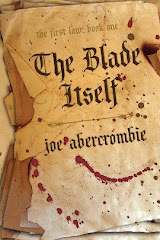.jpg)

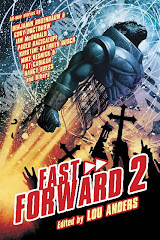
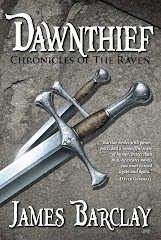
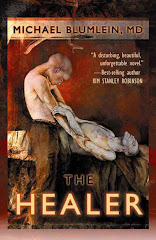
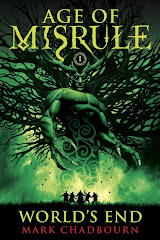.jpg)
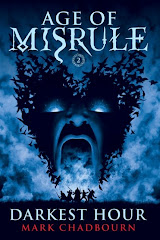

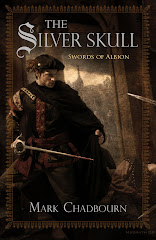


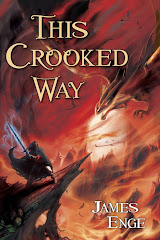
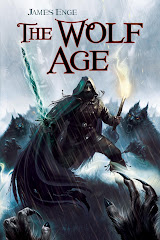


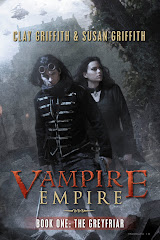
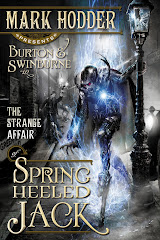


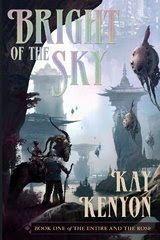.jpeg)
.jpg)
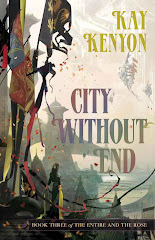


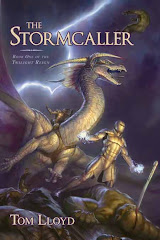
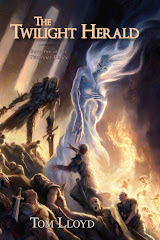
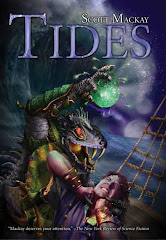

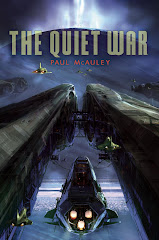



.jpg)




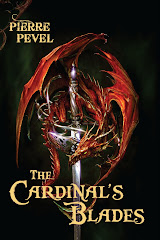



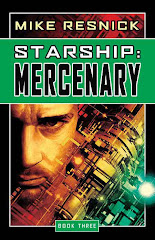

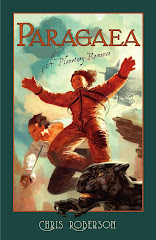
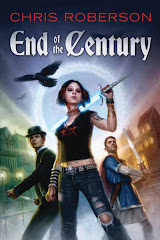


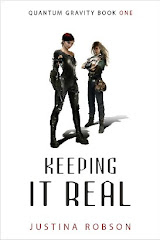.jpg)

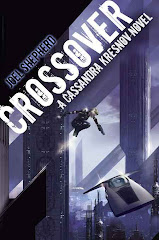
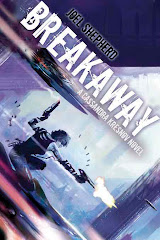
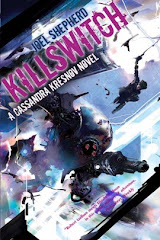.jpg)

